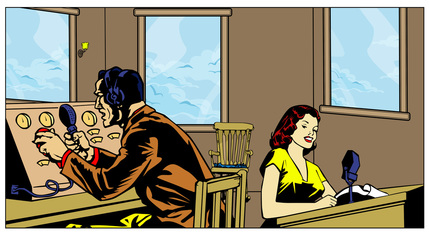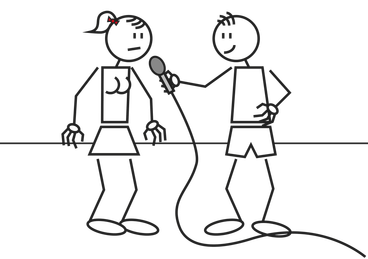|
Get the info to this super sexy video in PDF form here: https://www.onlineradioschool.com/common-mistakes.html
A simulrec is a great idea. We used them all the time at the BBC World Service. Two people talk to each other via Skype or the phone. While talking via Skype/phone, both of you also record the conversation into a high-quality microphone. So, you chat through the phone/Skype, etc.; however, both of you also record into good mics at the same time. Once the interview is over, one of you sends the other person the high-quality audio WAV/AIFF file. The other person edits both quality files together. Now, you have an interview where both people have high-quality audio, and it's not crappy audio recorded through a PC microphone.
Everything you say needs to have a beginning, middle and end. And I mean EVERYTHING! In the last 18 years, I've seen soOoOOoOoOO many presenters waffle and waffle. They think they're amazing by just 'giving it;', when in fact they're just talking cow poo. And trust me, I've heard sooooo much cow poo over the last 18 years.
Before you open your gob, know EXACTLY what you're going to say. Know how you're going to start your presenter link and MORE IMPORTANTLY know how you're going to finish it. Ask yourself this: how are you going to introduce your next item? Random waffle is baaaad; prepared speech is awesome. So, do you know what you're going to say now? Ashley Talking over your guest drives me up the flipping wall, and professional broadcasters and podcasters are notoriously bad for doing this. So here’s a question for you: What is the sole purpose of your interview? Now, think about for a quick second while I go and play with some chickens.
The primary purpose of an interview is to get information from your guest across to your audience, and you can’t do that if you’re talking over the flipping answers. Gorgonzola cheese man! The interview is not about you and your big gob - NO - it’s about getting the information from your guest across to the audience. To sum up One - Ask your question and then keep your big mouth shut. Two - Listen to the flipping answers and keep your big mouth shut. Three - Don’t talk over the answers - keep your big mouth shut. And FINALLY don’t make stupid noises when your guest is replying to your questions. Right, I’m out of here because my bus leaves in 7 minutes, and I’m planning to be under it. Cheers! Ashley While studying media law is very tedious for radio DJs and podcasters, it's probably the most important thing a radio presenter has to learn. In this post, we'll learn about defamation, libel and slander. If you guide yourself by these basic rules, you'll be ok. Just to note, I'll be repeating myself throughout this blog. My goal is to drill this information into your head. You need to understand the basics of defamation. If you don't, the chances are high that you'll open your mouth, say the wrong thing and get sued. Your station can also get sued as well. Be careful! Throughout this blog, I will repeat the mantra below. "If you 'accuse' someone of something that's NOT TRUE, you could get into legal and financial trouble." Disclaimer: UK Media Law While this post deals with UK law, it’s still worth learning this information. The UK has some of the strictest libel laws in the world. If you guide yourself by UK libel laws, the chances of you being sued for defamation will be slim. I'll add a brief US law explanation at the bottom. Tip Forewarned is forearmed. The Three Terms Most Used Defamation, libel and slander. What Is Defamation? Defamation is the law's way of protecting 'reputation.' It’s merely the posh word for 'ruining someone’s credibility or ruining their reputation.' Try and think of defamation this way. It makes it easier to understand. Tip Defamation = the posh word for ruining someone's 'reputation.' Media law books define defamation as “exposing another individual to hatred, ridicule or contempt. The written statement/spoken word has caused the individual to be shunned or avoided.” The Two Forms of Defamation Defamation comes in two forms. You can 'defame' someone by either libel or by slander. Defamation = Libel and Slander Libel and slander are pretty similar. One is for the written (or broadcast) word, and one is for the spoken word (in public). However, both terms deal with affecting someone's 'reputation.' Once Again... Think of defamation (this could be libel or slander) as affecting someone's 'reputation.' Slander Slander is where I ruin your 'reputation' by the spoken word in public. Someone overhears me saying: “David is a thief, and he steals money”. The person who heard my statement now believes David is a thief. Is It True? If my statement is; however, false, I have now ruined David’s reputation. People may not do business with David because of what I've said. If what I've said has ruined David's reputation, he can now sue me for slander. If I can't prove what I said (under UK law), then I will lose the law case (and a lot of money.) Libel: This Is What Radio Presenters Need Libel is very similar to slander. Only this time, libel is where I ruin your 'reputation' by the written word or by the broadcast word. Libel incorporates websites, forums, emails, TV, and radio shows etc. (as they are a form of permanent record). Watch What You Say and Write Don't accuse anyone or any company etc. of anything you can't prove. Don't say or write anything (on social media) that can ruin the 'reputation' of a person/company etc. There have been numerous cases of people being sued for libel in the UK for tweeting 'opinions.' Example You say on your radio show: “Tracey's website is a scam”. Audience's Response Ok, we won’t do business with Tracey. Your Up and Coming Law Case Tracey now sues you for libel (the statement was made on the radio). Your comment has lowered the individual (Tracey) in the estimation of “right thinking people” (the audience or people who may do business with Tracey). Your written statement/spoken word has now affected Tracey's business, trade, office or profession. You've said... Tracey is stealing money. Don’t do business with her. Now, it's time for you to get a lawyer. Under UK law, it's down to YOU to prove your statement is TRUE in a court of law. Other Things You Can't Say Tracey is a fraud.... Tracey is a liar.... Tracey is a cheat etc. Tracey smells. This is ok. Another Example If I say, “David's business lies to its customers.” I could be sued by David if this statement is NOT TRUE. Why? Well, these words could cause David's 'reputation' harm. I'll explain again.... If David is a businessman (or business), people may not want to do business with him after hearing these words. Simply put; they may not trust him now. And if they don't trust him, then his reputation has been ruined. Remember... If your statement is NOT TRUE and affects 'reputation', you can be sued for libel. I'll say it again.... If you call someone (or a company) a thief, a fraud, a liar etc. on social media, on a website, the radio or TV etc. and you can't prove your statement, you could get sued for a lot of money. If you CAN'T prove this statement, then this = a law case. THINK BEFORE YOU STINK Before you open your mouth or tweet your comment, THINK! Will the 'statement' affect someone's 'reputation?' IF IN DOUBT, CUT IT OUT! Guests and Libel Even if you haven’t personally libelled someone, you can still get sued for what was said on your show. This is because your guest has committed libel and you’ve missed it. Tip Always monitor what your guests say as well. Defaming a Company You can defame a company too. If you say that Brand X Cola doesn’t pay their staff wages, they can sue you for ruining their reputation. Even if you change the brand name, but their brand is still identifiable by other means, you will still get sued. Social Media Technically you could also get sued for your Tweets or Facebook posts. Many people in the UK have been sued for what they've posted on social media. Watch what you post on social media. Tip Are your social media posts ruining someone’s reputation? If they are, you could get sued. Yeah but It's on the Internet.... Not everything on the internet is true. Just because someone has retweeted an allegation doesn't mean it's true. If in doubt, cut it out. The Complicated Bit and Reputation If you said Britain’s most violent criminal Charles Bronson (Google him) doesn’t pay his UK TV licence, then this is unlikely to be defamation (libel). Why is this? Well, his 'reputation' is unlikely to be ruined by this statement. He is, after all, a violent prisoner. However, if I say the head of the BBC doesn’t pay his TV licence, then this is likely to be defamation. Well, why is this? The statement against the head of the BBC will definitely affect their ‘reputation’. The BBC by law makes everyone buy a TV licence. Imagine the scandal if the head of the BBC doesn’t have a TV licence. They will sue you for damaging their reputation. And if a court of law believes that your statement has damaged their reputation, then you will be in big trouble. And it’s not just you that will be sued. Your station/publication may also be sued. Believe me; they won’t be happy about that. You may also be looking for a new job if that happens. NEVER REPEAT A LIBELLOUS ALLEGATION Anyone who repeats a libellous allegation can also be sued. This is important to understand. Example Someone on Twitter makes a comment that later on is found to be libellous. In other words, their comment has damaged the reputation of an individual or a company. As part of your radio show, you; however, have read out the libellous tweet. Not only will you be “repeating the libellous comment” (which means you could be sued) but the station that you’re representing could also be sued. Tip Repeating allegations without making sure they are true is a good way to get yourself knee deep in litigation. IF IN DOUBT, CUT IT OUT Another Tip Just because something has been written in a national newspaper or it’s online, doesn’t mean it’s always safe to use. Newspapers have got it wrong in the past and they've been sued many times. Check your sources before you make the statement. Information on the Internet Hearing or seeing something written somewhere else doesn't make it true. Just because it’s on the internet DOES NOT make it TRUE. To protect yourself is relatively easy. Don't make anything up. Check your sources and then check again. If two or more official “news agencies” (e.g. the BBC, Reuters, etc.) are covering the same story, then it’s likely to be safe. If in doubt, CUT IT OUT! Limiting Damage If your guest makes a libellous statement, you must immediately distance yourself and the station from the offending comment. Doing this straightaway will limit the potential damage. It may even result in the case not going to court if the person trusts you have acted promptly to limit the damage. What to Do When Your Guest Libels Someone If you think your guest’s comment is libellous, then immediately ask your guest to retract their comment. Something like: “I’m afraid we can’t say that on air Mr X, will you please retract that statement." Next, quickly round up the interview. We do this because we don’t want our guest to repeat their comment. Make no mention of the libellous comment and ensure that you and your station do not seem to agree with the comment. Apologize on behalf of the station (without repeating the comment) and then move on. If it's a phone in and someone says something libellous, cut them off straight away, distance yourself and the station from the comment and move on. Defences to Libel 'Justification' or in Other Words: The Truth If you can prove that the statement is true, and you have evidence which you can bring to a court of law to show that X did do Y, then you will be safe. Fair Comment The defence of fair comment allows an honest person to express an opinion even if it's “prejudiced, exaggerated or obstinate”. This can be a tricky defence so tread carefully. For example, a music review or a film review can be opinionated and negative without falling foul of the law. However... Your comment must be about a topic in the public interest. It must be based on truthful facts. It must be viewed as a comment and not as a statement of fact. If your comment seems like a statement of fact and it does affect someone's reputation, it could get you sued. So, be careful. If in doubt, cut it out. Death Another defence to libel is death. You’re OK if the person you are talking about is dead. However, check this law in your own country. Apart from that, always tread carefully. THINK FIRST before you open your mouth. It might just save you a lot of money. For more on defamation check out the BBC Editorial Guidelines online. Source: BBC: https://www.bbc.co.uk/news/world-us-canada-45551895 Ashley Cowan runs the Online Radio School where he tutors in radio presenting and media interviewing techniques. He was a BBC World Service, Radio studio manager for nine years. He was also the station manager for Radio Kings, the hospital radio station for Kings College Hospital. Other crimes include being the training manager for K2K Radio & Whitechapel AM. Sometimes he even records The Economist Audio Magazine on random Thursdays.
As a radio presenter, he's hosted radio shows on three FM stations. That was back in the day when FM radio was a big deal. The poor radio stations that had to put up with his brand of terrible comedy were: Radio DÅB, FLR 107.3 FM, and City FM. Radio DÅB had 100,000 listeners! Woo! When he's not writing about himself in the third person, then he was also a community radio DJ at Radio Kings, TGR Sound, Sydenham Radio, and Croydon Radio. He once did production work for Total Rock.com. That was a fun station with a cool owner and a great broadcast team! Brown fizzy water often accompanied the broadcasts! Mix like a Master Radio Presenter Perfect for Presenters and Podcasters There are two types of mixing desks being used in radio. Professional radio stations use broadcast desks. Community radio stations tend to use music mixing desks. In this blog, you'll learn how to set your levels on both types of desks. A Music Desk Being Used as a Radio Desk This is very common in the UK A Professional Radio Broadcast Desk Sonifex S2 Many community radio stations use music mixing desks as their broadcast desks due to limited funds. However, the skills you learn on a music mixing desk can easily be applied to any radio mixing console. Learn these principles well, and you'll be able to use any radio broadcast desk. In fact, most of you are going to come across mixing desks like this in the picture below. Don’t be disheartened. Music mixing desks can do most of the things that a professional radio desk can do. Balance Your Levels! Balancing your levels is VERY important. You can have the best show in the world; however, if your radio show sounds technically bad, then no one will want to listen to it. You need to learn how to use a mixing desk. Professional Sounding It’s imperative that your radio show sounds professional. Whenever you broadcast, you've got to make sure your audio levels are balanced. In other words, all the volumes coming out of the desk are at the correct level. At the end of this blog, I will link you to a PDF about audio levels. Do read it. It will help your shows. So Why Do We Use Mixing Desks? We use mixing desks to send a collection of sounds from the studio to people’s radios/computers etc. These ‘sounds’ can be voices, music, telephones, jingles, etc. Our job is to get those sounds into the desk and then out on air. Channel Inputs Each channel strip is an ‘input’. The mic channel is the ‘input’ for your voice; the computer playout channel is the ‘input’ for the music, the telephone channel is the ‘input’ for the telephone, etc. Each input goes into the desk through a separate channel, and each channel has its own fader. It's why you have a mic 1 fader (for the mic 1 input). A mic 2 fader (for the mic 2 input). A computer playout fader (for the music on the computer). A jingle fader (for the jingles). An aux fader for people to plug in their laptops or iPhones etc. and so on. Ponder About Taps/Faucets for a Moment! Think about the fader channel as being like a tap. When we turn the voice tap on, the voice comes out. When we turn the voice tap off, the voice stops. When we turn the music tap on, the music comes out. When we turn the music tap off, the music stops. You get the idea. Turning the tap on is either pushing the fader to the top of the desk or to where it says 0. (The number may have three little lines next to it). Turning the tap off is pulling the fader to the bottom. On Before You Run! On some radio desks, you may have to switch the channel “on” first before you open the fader. The Music Mixing Desk as a Radio Desk Switch the Channel On The Professional Broadcast Desk Switch the Channel On On these desks, it’s - switch on the channel - open the fader - easy. Watch Where You Go Some desks you open the fader up to the top. Other radio desks you open the fader to midway. As you can see below, the fader is opened to the top of the channel. On these desks below, the fader only goes to the middle of the channel. Distortion of Doom At my hospital radio station, we opened the fader to midway. However, most of my volunteers opened the fader to the top of the desk. Doing this, meant too much signal was going into the desk. Their music, and vocal links became too loud and distorted. Why? Simply put, they’d turned the volume up too high. Watch out for this mistake. Always ask your trainer where does the fader go on the desk. More About the Desk Think of the desk like this. Each fader is linked to a ‘source’. A ‘source’ could be a microphone, a playout computer, a phone line, a CD player, a record player, etc. Each channel normally represents one source. Don’t get scared by the number of faders on the desk. Just think one fader, one source. One Vision! (Bad Queen joke there!) Mic faders tend to be red. (It's not always the case though). Work One Desk, Work Them All A lot of radio mixing desks tend to follow the same configuration. In other words, a lot of the desks tend to look the same. Different companies may place individual buttons in slightly different areas, but all these desks are very similar. Once you can work one radio desk, you can pretty much work any radio desk. It’s just a case of searching for the same buttons. All You Need to Know Is... As a presenter to a radio show, all you need to know is how to pre-fade listen (cue) your source. In plain talk, this just means knowing how to set your volume levels and knowing how to monitor your volume levels. Setting Levels on a Music Mixing Desk The process is the same for every channel. It's also the same for a professional broadcast desk. 1. Keep the channel fader DOWN 2. Switch the channel’s ON button on. (If it has one). 3. Press the PFL button down. 4. Press play from your source or speak into the microphone. (Make sure you are in a comfortable position in front of the mic and speak at your normal volume.) 5. Look at the meters on the right-hand side of the desk. 6. Use the gain button at the top of the channel to adjust the source/voice until the meters peak at 0. (We go to 0 on this desk) 7. Switch off the PFL button (so that the button is UP). 8. Open the fader to 0 on the desk 9. Press play from the source/start speaking into your microphone. ALWAYS keep an eye on the meters during the broadcast. If the level is too high, then adjust the gain on the channel (the proper method) or lower the fader slightly. If the level is too low, then increase the gain on the channel or raise the fader. Let's look at this in more detail now. I'll explain how we set the levels on the desk that K2K Radio uses. Setting Your Voice Levels: Tutorial for K2K Presenters Find the mic fader. On this desk, it's usually Channel 1 for yourself and Channels 2 and 3 for your guests. They are the first three faders on the left-hand side of the desk. 1 2 3 4 ALWAYS make sure the fader is down first BEFORE you PFL (pre-fade listen) any source. Select your channel. Keep the fader DOWN. Press the ON button on. Press the PFL button in. Either play from your source (CD, computer, tablet etc.) or speak into the microphone. Look at your levels on the meters. What is the reading? If the meters don’t read 0, then adjust the channel gain. Either turn the dial right to increase the level or turn the dial left to decrease the level. As you can see below, the audio level is too low. Adjusting the Gain Let's turn the gain up. We'll turn the button (dial) right. As you can see, this is an immaculate desk lol! The Correct Broadcast Level (For This Desk) Now our levels are great! Next, switch off the PFL button. Raise the channel fader to 0 (on this desk). Speak or press play from your source. (CD, tablet, phone, laptop, vinyl). You're now broadcasting at the correct level! Repeat this method for channels 1-8. Let's Recap 1. Keep the channel fader DOWN 2. Switch the channel’s ON button on. (If it has one). 3. Press the PFL button down. 4. Press play from your source or speak into the microphone. (Make sure you are in a comfortable position in front of the mic and speak at your normal volume.) 5. Look at the meters on the right-hand side of the desk. 6. Use the gain button at the top of the channel to adjust the source/voice until the meters peak at 0. (We go to 0 on this desk) 7. Switch off the PFL button (so that the button is UP). 8. Open the fader to 0 on the desk 9. Press play from the source/start speaking into your microphone. Pre Fade Listening a Source on a Professional Radio Desk Watch this short video below. Pre Fade Listen With VU Meters Learn about where to find show ideas. Discover how to show prep like a pro. Master the mixing desk. What it is, how it works and how to use it. Discover what you shouldn't do as a presenter. Check out the Radio DJ Course Ashley Cowan runs the Online Radio School where he tutors in radio presenting and media interviewing techniques. He was a BBC World Service, Radio studio manager for nine years. He was also the station manager for Radio Kings, the hospital radio station for Kings College Hospital. Other crimes include being the training manager for K2K Radio & Whitechapel AM. Sometimes he even records The Economist Audio Magazine on random Thursdays. As a radio presenter, he's hosted radio shows on three FM stations. That was back in the day when FM radio was a big deal. The poor radio stations that had to put up with his brand of terrible comedy were: Radio DÅB, FLR 107.3 FM, and City FM. Radio DÅB had 100,000 listeners! Woo! When he's not writing about himself in the third person, then he was also a community radio DJ at Radio Kings, TGR Sound, Sydenham Radio, and Croydon Radio. He once did production work for Total Rock.com. That was a fun station with a cool owner and a great broadcast team! Brown fizzy water often accompanied the broadcasts! In his spare time, he's London Irish (so he likes a beer). He's recently created an online "Fingerpicking for Guitar" course. There he teaches the art of fingerpicking for... erm...guitar. Students can learn twenty different fingerpicking styles for their chords. Why Podcasters and Presenters Should Make Radio Packages In this blog, we'll look at: 1. What's a radio / audio package? 2. Why radio presenters & podcasters should make audio packages. 3. Beginner mistakes. 4. Listening to the professionals. 5. Where to find examples of radio packages. 6. Microphone and audio recorder or just an audio recorder? 7. Radio reporter microphones. 8. Which audio recording unit should I buy? 9. Budget audio recorders. 10. How to record quality audio on location. 11. Bad places to record audio. 12. Good places to record audio. 13. Safety tips. 14. Making a radio package. 15. File formats. 16. Recording in mono. 17. Learn the mechanics first then transfer up. 1. What's a Radio Package? Let's break it down into small segments. A radio package (or audio package) must entertain. It must provide information to your listener. In other words, it must leave the listener knowing more about a subject. A Radio Package Can Contain: An interview with one or more people. This can be in someone's home, at their business or out on location such as a park etc. A vox pop. This is a collection of people answering the same one or two questions, which is then edited down to fifteen/twenty seconds. Live location atmosphere. For example, you're making a package about a band, and you want to showcase the live gig etc. Or, you're at a business seminar, and you want to get some atmosphere for your podcast. Background and current information on the story. You can easily do this by voice over. Sound effects. Using audio to help tell a story. Example of Sound Effects Audio of a phone ringing. Recording of someone picking up the phone. Live audio of someone saying "Welcome to The Squirrel Rescue Shelter." These sound effects can help tell the listener where we are. 2. Why Presenters Should Make Audio Packages for Their Shows. Being able to create a high-quality 'radio package' (and that means one with good audio quality) can enhance your show or podcast. A radio or audio package allows you to get out of the studio, and to gain access to stories, interviews and events that normally you could only cover by reading from text. Once you have a portable recording unit (more on this later), you can make packages wherever you go. If for example, you host a soul show on community radio, you can then go to a gig, interview the band, and interview the audience. You can also do a before and after version. In other words, how do you feel before the gig? How are you enjoying the gig now? How did you enjoy the gig? This can give your listeners an atmosphere of what it was like to attend. If you're hosting a business podcast etc., you can do exactly the same about the event you attended. There are many other angles you can take. You could look at the venue itself, its history, the gig from a sound engineers point of view and so on. It's the same with your business podcast. Why are you going to this seminar? Why does this person influence you? What do you hope to get from this workshop? What have you learned from this event? Why would you recommend this event etc.? Radio Packages Can Lead to Radio Reporting Once you understand how to make a radio package, you could then progress onto becoming a radio reporter. To be a professional radio reporter, you'll need journalism and interviewing skills. However, creating packages for your radio shows or podcasts, will give you great experience and improve your shows. It will also make your shows/podcasts more interesting than the other presenters. These community reporting skills can help you go on to become a freelance reporter. I truly believe these are skills worth learning. Just to Note I'll only be looking at pro positive packages in this blog. Most of you will be hosting a music show or a business podcast. You won't need to create a hardcore journalism package. I also won't be focusing on story. 3. Radio Reporting: Beginner Mistakes A common mistake that beginners make is when they try to emulate professional broadcasters. That is, they want to make all their packages on hard-hitting, dark, and serious subjects like whale molesting and squirrels on crack cocaine. In your beginner days, don’t make it hard for yourself. Just keep it simple. Light topics can make great radio too. Everything doesn’t have to be doom and gloom and serious. For those of you that want to make community journalism packages, this blog will teach you the mechanics. You'll just need to find your journalism angle. Feel free to check out my media interviewing course if you'd like to learn how to conduct media interviews. 4. Listen to the Professionals With any skill, it's always best to learn from the professionals. Go and listen to a few packages. See how the reporters have crafted their stories. Listen to how their voice-overs push the story forward, listen to the sound effects they use, listen to the location audio they've recorded. You can learn a lot by simply listening to the professionals. 5. Where to Find Examples of Radio Packages Radio 4 has numerous packages. Here's a good example of a typical radio package. It has a studio voice over, location audio, an external interview and music. American Examples of Radio Packages NPR.org has many accessible packages. StoryCorps I cheated! This isn't an example of a site with radio packages; however, I do like their site. They offer short 3-5 minute interviews. Check them out sometime. Radio Documentaries (Long form audio packages) The BBC World Service. If you can’t access these documentaries from outside of the UK, then consider using the free VPN TunnelBear. They give you 500MB of free streaming each month. If you send out one promotional tweet, then they'll give you an added 1GB. RTE Documentaries Radiolab approach storytelling differently. I like them a lot. Here's a great example. This American Life has a large back catalogue of stories. Which Audio Recording Device Should I Use? The answer to this question has many layers. It depends on your budget, it depends on your show, and it depends on your career ambitions. Let's look at this now. 6. Microphone and Audio Recorder or Just an Audio Recorder? If you want to be a professional radio reporter or a professional documentary maker, then a handheld reporter microphone and a recording unit is probably the way to go. You'll pay more now, but you'll have the equipment for life. You can consider these two devices as an investment in your future. This setup is more expensive because you're also paying for a quality handheld reporter microphone. Let's Talk Reporter Microphones First I can't give you a definite answer because everyone's situation is different. How much money do you have to spend? Will you be recording mostly vox pops outside in the wind or will you be inside recording press conferences? Will you be a presenter that walks and talks etc.? I'm only going to touch on this subject now. I plan to write another blog specialising in microphones. Here are two great pages from Transom.org. They tested eight handheld reporter microphones. (Finish reading this blog first though!) Page 1 shows you the microphones. Page 2 gives you an example of their audio quality. For the record, I use a Beyerdynamic MCE58. It's a dynamic microphone that has an omnidirectional pickup pattern. (More on the different types of microphones in my next blog). I also use a Tascam DR-05 as my audio recording unit. I connect the microphone to the unit with an XLR to 3.5mm audio cable. A Word for the Audio Snobs There's a lot of snobbery in the audio world. (Strangely, it's not like that in the video world). My setup goes XLR out (from reporter microphone) to a 3.5mm jack into the recording unit. XLR to XLR is Better...However..... An XLR output to an XLR input does provide better audio quality. If you have the budget for a reporter mic and a portable recording unit with an XLR input then get one. However, something like the Tascam DR-05 with a minijack input works just as well. Ignore the audio snobs. To be honest, there's not that much difference in the audio quality at a community level. A decent microphone is the main thing. An XLR out to mini-jack in is okay. Unless you're recording movie soundtrack audio, your radio/audio packages will sound fine with the XLR to 3.5mm cable. XLR to 3.5mm (Shock horror from the audio snobs here) You've Got to Know How to Record Quality Audio First If you don't know how to record quality audio in the first place, it doesn't matter what cable you use. I'll show you how to do that later on. A Microphone & Audio Recorder or Just an Audio Recorder? In 2000, the standard BBC radio reporter kit was a handheld reporter microphone and a mini-disc recorder. 7. Radio Reporter Microphones The two radio reporter microphones that the BBC used back then were: Beyer M58 (£130 / $174) This needs to be powered so I wouldn't recommend this for a starter mic. Beyer MCE58 (£271 / $379) (This can be found for around £200 if you shop around) I have a MCE58. That was back in the days when I was rich (unlike now lol!) For years, I used the MCE58 with a mini-disc recorder (3.5mm jack in) and the audio quality was perfect. In 2014, I went to Tokyo for six months. Believe it or not, Tokyo is cheaper than London. I picked up a Tascam DR-05 for £45 / $60. In the UK, the same unit costs £75. My Beyer mic works perfectly well with the Tascam. More Reporter Microphones: Erm...prices will always change since this blog. Use these as a rough guideline :) Ta! Rode Reporter Microphone Nowadays, you can get a Rode Reporter Mic for £118 / $158 You can also check out its audio quality here. Electro-Voice RE50N/D-B High Output Dynamic Interview Microphone I've never used this microphone, but it comes highly recommended. Here's a good youtube video on it. He used it with an XLR to 3.5mm cable. Watch it after reading this blog. It's down to You to Do Your Research Every case is different, research microphones and watch YouTube videos. Start with Transom's reporter microphone page. 8. Which Audio Recording Unit Should I Buy? Next, you need to buy an audio recording unit. My advice is, only spend good money if this is going to be a career option for you. Remember, most employers will provide you with the equipment. Here's an interesting page on the different audio recorders you could buy. It's a bit dated mind you. Check it out AFTER you've read this massive blog of doom! Microphone and Audio Recorder Setup Is Pricey for Newbies For you newbies, this setup is expensive. You need to buy an audio recording unit, and you need to buy an expensive handheld reporter microphone. You're probably looking at paying £200 - £250 ($267 - $334) for a semi-decent setup. 9. Budget Audio Recorders Zoom H2: £138 / $193 I'm going to assume your budget is limited. I'm also going to presume you're presenting on a local internet/community radio station or making a semi-pro podcast from home. There's no point spending £500 / $670 on expensive equipment if you're only presenting to five people on a tiny radio station. One of my ex BBC World Service, Radio trainers, now tutors at Goldsmiths, University of London. I asked him what do they recommend for their MA students. He said they recommend the Zoom H2. I've personally used a Zoom H2. It has great audio quality but (as well as the Zoom H1) it has some handling noise issues. They advise their students, just hold it carefully! This unit costs £138 and can easily make the packages you need. (By the way, I have no connection or affiliate with Zoom.) If it's good enough for students studying a masters degree in radio, then it's good enough for you. Here Is an Example of the Zoom H2 Outside Outside wind issue is always a concern. Here's a video with the Zoom H2 and wind cover. By the way, you can always make your own. Someone suggested using a car sponge. I might try that with my Tascam DR05. The Zoom H1: £74/ $99 You have to be a bit careful of wind and handling noise with this unit, but it will certainly do the job. Forgetting this guy's wig for a second, here's a good video on it. Zoom H1 Wind Test Always Monitor Your Audio None of these YouTube reviewers used headphones. Always use headphones. Why? Because then you can hear if you're popping or if the wind is affecting your recording. Oi Oi Pop Pickers! 10. How to Record Quality Audio on Location Why do we record audio on location? To get out of the studio environment. To go where the stories are. To get a sense of the “actuality” (the sense of being at an event). To record an interviewee in their home thus making them feel more relaxed. Recording overseas/in the field. Always Be Prepared If it can go wrong, it will. ALWAYS check EVERYTHING before you leave home. Do you have a memory card etc.? Does your microphone work? Have you tested your microphone to see if it’s recording? Is your microphone lead faulty? Do you have enough battery power in the recording device and microphone? Do you have spare batteries? Do you have a backup memory card etc.? Do you have headphones? Do your headphones work? Have you tested the device before you’ve gone out? Check ALL equipment BEFORE you leave. A faulty piece of equipment can often cause a complete failure of the recording. When You Arrive on Site The first thing to do when you arrive on site is to set up your equipment and then just listen. REALLY listen. Listen to where ALL the noises are coming from? Are you standing under a fan or a buzzing light? Are you close to a noisy road? Is there a background noise that will bleed all over your recording etc.? ALWAYS LISTEN FIRST Always resist the temptation to rush into the interview. Once you’ve listened, then the next thing to do is to record 2-3 minutes of “wildtrack” onto your recording device. (Wildtrack is the background atmos of the event/interview that you are at). We do this for a couple of reasons. When we listen with the headphones on, and the volume turned up, we can pick out background noises easier. A background noise can destroy your package. By listening first, we can spot potential noises. We can also use this “wildtrack” in the edit later. Sometimes location atmosphere can save you if you’ve messed up a recording. Example You’re doing a link live at an event, and when you get back to base, you discover “handling noise” from the microphone on the recording. Rather than going back to the event you can record the link at base. Next, you can mix your link with the “wildtrack” that you've recorded. It is cheating, and it won’t sound the same, but it will save the day. However, to avoid this hassle, just record your link properly at the event. Avoid Continuous Noises Apart from making it hard to hear the interviewee, rhythmical background noises (such as music playing in the background, etc.) can make editing audio very tricky. The listener will be able to hear when you've made an edit. This is because there'll be a change in the music/background noise when you cut the interview. Audio Recording Tip Always get people to switch off background music/equipment before you interview. Close Miking One workaround to loud background noises is to “close mike” the subject. In other words, get the microphone as close to the subject's mouth as possible. Tip Make sure you turn down the recording level on your device. Your microphone is now closer to the subject, so the potential for distortion is higher. Close miking also raises the risk of audio “popping”, i.e. loud breath sounds into the microphone, so do be careful. Another problem of close miking is that you’re invading the subject’s personal space. When you put the microphone closer to them, they’ll simply pull away from you. Quite often you’ll end up chasing them around! SO….. Always tell the subject what you’re going to do: “Listen it’s really noisy here, so I’m going to get the microphone a lot closer to you. Please don’t pull away from it.” When using this method, you MUST turn down the microphone volume otherwise your levels will distort. However, this is the last resort method, the simple thing to do is: Go and find a quieter place. 11. Bad Places to Record Audio Anywhere near a busy road. Across a table in a noisy office. It’s awkward, it psychologically puts a barrier between you and the interviewee, and the sounds will reflect back off the table surface into the microphone. Underneath large lampshades/lights/strangely shaped ceilings. You will get reflections back into the microphone, or the microphone will pick up the “hum” from the lights. In a bathroom or a “lively/hard” room. In other words, rooms with hard surfaces such as wooden floors, bathroom tiles, etc. The microphone will pick up strong reflections and “echoes” from the hard surfaces. In small spaces like an alcove etc. Odd reflections will “colour” the sound. Solutions to Background Noise Get close to the sound source (the further away you are, the more background noise you will record). Being aware of the acoustics you are in and controlling those same acoustics. Recording “wildtrack” to help mask difficult edits. Listening to the output as you record. 12. Good Places to Record Audio Near a thick curtain or a soft surface. A comfortable sofa in a quiet room. Your interviewee will feel more relaxed, and the sofa will give acoustic absorption. In a garden or other quiet outside location. There will be few acoustic reflections. However, listen out for birds, insects and the wind blowing on the microphone. Pedestrian area/quiet back street. The absence of traffic will make recording easier. Remember CRAP IN = CRAP OUT 13. Safety Tips Keep an eye out for muggers. Always have a thought for your personal safety. Always let someone know where you're going. Get the contact details of your interviewee subject before you go and meet them. Have a charged and working phone. Don't go off to an isolated spot with expensive recording equipment. Try and record public interviews in spaces where other people are. Brief Location Audio Recap Always LISTEN at your location. Eliminate or reduce the acoustic problems. If there are too many background sounds, MOVE the interviewee to a quieter location. Close mike them but turn the microphone recording level down. Watch out for “popping.” Always record about 2-3 minutes (even more) of “wildtrack” before you start. When Interviewing Your Subject Set your audio levels on a practice question. Get your interviewee to tell you about their day etc. Record them as they speak and adjust the levels accordingly. Inform them you’re only setting your recording levels. Before the interview, tell your interviewee that you may look down at your equipment while you’re recording. Inform them that this is for monitoring purposes only. You're just checking to see if the recording levels are correct. If they see you looking at your equipment during the interview, they should ignore you and carry on answering the question. Reassure them that you're listening to their answers; however, you’re just checking that everything is recording correctly. Make sure the “pause button” is OFF. (LOL, done that twice!) Make sure you’re RECORDING FIRST before you ask your first question. Make sure you’re NOT JUST PLAYING BACK! (I’ve done that a few times!) If you hear a “pop,” be confident, and STOP the interview. Tell your subject why you’ve stopped the interview. “Sorry you just popped there, I’m going to ask you that question again.” Then re-ask the question. WATCH OUT for handling noise on the microphone or “cable noise/rattle.” If you hear these noises (or any other unwanted noises) when asking a question/receiving an answer, STOP and ask the question again. Be polite, be courteous and be confident. Don’t think “that’ll be all right I’ll just carry on” because it won’t be. As soon as you get back to base, you’ll realise that you won’t be able to use that answer. This will weaken your interview. Always look at your equipment levels when doing an interview. Don’t just go on blind faith. If your levels go into the distortion zone, stop the interview, re-level the volume and ask the same question again. Make sure your headphone volume is loud enough for you to analyse the audio you’re recording. Make sure you’re not just turning up the headphone volume when you’re re-levelling your device. Always listen to the audio quality when you’re asking questions and receiving answers. Ask yourself: Does the audio distort? Is the audio level too low? Is the background noise too high: if so what will you do about it? Watch out for breath “pops”, noticeably the letters “p” and “b.” Before you go out, be aware of how windy it is. Strong winds blowing onto the microphone will destroy your interview. Did you bring a wind/pop shield for the microphone? (An often ad hoc method is to wrap some cloth around the diaphragm end of the mic if you didn’t). Wind Effects on the Microphone Wind blowing onto the microphone can be a big issue. If you're recording outside in the wind, then standing by the side of a building with your back to the wind can reduce the problem of wind noises. Too Much Reverberation The microphone is too far away from your sound source. Too much “indirect” sound, (that is, sound which has bounced off walls, floor, ceilings and other hard surfaces, etc.) will give your speech an excessively “distant” sound. The aim with recorded speech is to give the impression that the speaker is in the same place as the listener. Head Movements If at first you’re recording too far away and you suddenly bring the microphone closer, you can get “movement” issues. Example You’re standing at a normal distance from your speaker, and they’re moving their head left and right when they answer you. At this distance, there won’t be much difference to your recording. However, if you’re close-miking, then those same small head movements will be magnified. This can cause undesirable sound fluctuations on the recording. If this happens, you need to tell your subject to stop moving their head. Always LISTEN AND ANALYSE. IF IN DOUBT, JUST DO IT AGAIN! 14. Making A Radio Package What's the purpose of your interview? Who will you interview and why? What location sounds do you need to help push the story forward? What narration will you need to write? The Pro Positive Cat Charity Radio Package You're going to do a positive piece on your local cat charity. It will be a short package on what they do and why they do it. You’ll need to research this information before you interview the charity. 1) Look at their website and read up about them. 2) Go away and read up about other cat charities. Look at what they’re doing. Look at what issues they’re facing. 3) Try to talk to people who work in cat charities. What issues do they believe are important? Depending on the angle, you can bring these issues into your interview later on. 4) Now you can start thinking about your interview. 5) You interview the boss about the pros and cons and the history of the organisation. Some of her answers can be used for creating your written links. You also interview an employee who works with the cats. You get cat sound actuality on location. Sounds of people petting and talking to cats, owners whose cats have benefited from the charity. The Paper Edit This is controversial, and there's no right or wrong way to this. I was taught this method in 1997. I like it. 1. You type out word for word everything that was said in your interviews. 2. You take a marker pen and you highlight the strong quotes from the interviews. 3. You note down all the sounds you recorded. If you're going to use the paper edit method, you need to keep a focus on your interviews. In other words, don't let the person ramble off topic. Typing out every word is slow. However, the paper edit makes it easier to highlight the strong quotes. Seeing your interviews on paper makes it easier for you to craft your story. You don't have to do this. I tell students to try and make a package both ways. Make a package using the paper edit method. Make a package where you skim the audio and pull out the quotes. See which method makes the best package for you. Next, you write your links around your quotes and audio. Intro voiceover: "Jackie Catman runs the Croydon Cat Sanctuary. They've been helping cats since 2001. I decided to pop down there to see what it was all about." Location Audio Location audio of worker talking to cats. Brief soundbite of why the worker is there or what their job role is. Main interview Taking the best bits from Jackie's interview. Location Audio More location audio to bridge into next interview of cat owner. Sum up charity and day. Think of how you want to start your package. Think of how you want to end your package. A strong ending is important. Don't let your package just fade out. Different Types of Endings: End on a strong emotion/feeling. End on a great sound bite. End on some interesting actuality (location audio). End on music. Now it's homework time for you! Homework Pick a documentary from The BBC World Service site. Make sure the documentary subject is interesting to you. Write down everything the reporter does. Example Intro audio Voice over Location audio. Listen to the professionals. See how they've done it. Also, feel free to drop me an email as well. [email protected] Keep Your Packages to Three to Five Minutes Only This is very hard to do, but it's important. You'll always have too much audio. You'll also hate cutting great sound bites and great location noise. However, it has to be done. Most people won't listen past five minutes unless it's a documentary. Keep your radio package short. Think About What You Want from the Interview First If your interviewee subject starts waffling on about something that's not connected to your story, stop them. That's wasted editing time. 15. File formats This is a blog in itself, and it can also get quite anal and techy. Depending on your equipment/storage, or the amount of recording you'll be doing, it's always best to record at high quality first. Once you've done your editing, then you have the option to compress down later. It's best to record in WAV format and then compress down on export. Remember, the higher the quality you record at, the larger the file size will be. It will also use more storage. Tip If you record in a compressed format (i.e. mp3) then when you export your file, you will probably compress down again. This is where you can lose audio quality. Record in WAV and then compress down if you have to. For years, most people recorded in WAV format at 16 bits / 44.1KHz. This is known as CD quality. To be honest, I still use this. It sounds fine. At the end of the day if you record in WAV format, 16 bits / 44.1KHz it will sound perfectly fine. You can go up to 24 bits / 48KHz if you want, but I'm not that bothered. Ok, sometimes I'll go all wild and crazy and record at 24 bits / 48KHz but hey I like a beer! It doesn't sound much different, to be honest. Look, I'm not recording the soundtrack to a Hollywood movie here. I'm making a radio package for a local radio station. Let's keep it all in perspective! You don't always have to compress down by the way. If you're uploading a five-minute package to the web and you have time, upload the WAV version. It's about 10MB per minute. A 5-minute package is about 50MBs. If Firefox let's you O_o, you can go to http://www.colincrawley.com/audio-file-size-calculator and use this cool audio file size calculator. My Recording Settings I record at 16 bits / 44.1KHz mono. Crazy off My Head Settings 24 bits / 48KHz mono 16. Recording in Mono Mono = one audio source. i.e. a voice. (Or a "gob" as we like to say in south London). Stereo = two audio sources. If you're using a reporter mic, you'll be recording in mono. If you have a Zoom H2/handheld device etc., then they will have a stereo option. When recording the spoken voice, it's good to work in mono. Recording the spoken voice in stereo can be tricky. If you have one microphone or one cable, use mono. Stereo HAS to have two inputs…that’s what makes it stereo. You can easily convert the file to stereo before export. Click Here for a Quick Stereo Mono Explanation 17. Learn the Mechanics First Then Transfer Up Once you learn the mechanics of making radio packages, you can then use them as your audio CV. The more radio packages you make at a local level, the more you can use them to get a job. Put the packages you make on your website and showcase them to a future employer. Once you're at a professional station, you can use their expensive equipment. Good luck! If you make a package, then send me a link. I'd love to listen to it! Learn where to find show ideas. Discover how to show prep like a pro. Master the mixing desk. What it is, how it works and how to use it. Discover what you shouldn't do as a presenter. How to Be a Radio Presenter Me being a part time twanger Ashley Cowan runs the Online Radio School where he tutors in radio presenting and media interviewing techniques. He was a BBC World Service, Radio studio manager for nine years. He was also the station manager for Radio Kings, the hospital radio station for Kings College Hospital. Other crimes include being the training manager for K2K Radio & Whitechapel AM. As a radio presenter, he's hosted radio shows on three FM stations. That was back in the day when FM radio was a big deal. The poor radio stations that had to put up with his brand of terrible comedy were: Radio DÅB, FLR 107.3 FM, and City FM. Radio DÅB had 100,000 listeners! Woo! When he's not writing about himself in the third person, then he was also a community radio DJ at Radio Kings, TGR Sound, Sydenham Radio, and Croydon Radio. He once did production work for Total Rock.com. That was a fun station with a cool owner and a great broadcast team! Brown fizzy water often accompanied the broadcasts! In his spare time, he's London Irish (so he likes a beer). He's recently created an online "Fingerpicking for Guitar" course. There he teaches the art of fingerpicking for... erm...guitar. Students can learn twenty different fingerpicking styles for their chords. 0 Comments Tips on Promoting Your Radio Show Warning: This is a rather large blog. You may need some liquid refreshment to make it to the end! In this blog I'll cover: How to target your live radio show to the correct listeners. What to do if you broadcast at a community radio station that has mixed programming and no listeners. Using the listen again feature to attract live listeners Why I recommend Mixcloud to all community radio presenters and podcasters. This blog post has a slight crossover with the "How to Be a Radio Presenter" article. If you haven't read that, then you might want to start with that first. Be warned though, that's also a long read. I'll also mention station formats once more as it's relevant to this post. Part One This is related to radio shows that broadcast live. Part Two This is related to presenters that have no live listeners. Everything in the top half of this blog post will also be related to using your radio shows as 'listen again.' The Two Main Ways to Attract Listeners to Your Radio Show Approach number one is for radio presenters who present live. Strategy number two is for radio DJs who don't have a live audience. In this case, we'll be using the 'listen again' function to attract an audience. Let's start with the live audience first. Attracting Listeners to Your Live Radio Show What is the mission statement of your radio station? If you're broadcasting live, then you'll need to know the demographics of your radio station. In other words, you'll want to know.... Who Are Your Audience? We need to have an idea about who's listening to our station. When we know this, we can target our shows to that audience. Focusing our shows towards a specific audience means we can connect with them better. It also means they'll find us easier. More on this in a moment. Targeting Your Audience Questions You don’t have to remember this information by heart. I just want you to consider these issues when planning a show. How Old Are Your Target Audience? 15-24 25-34 35-44 45-54 65 plus Why Do We Want to Know This? Well, there’s no point trying to do a trans based techno show at a station that only serves elderly listeners. You may love your show, but the audience won't. Why? Because you're not playing the music that they're 'expecting' to hear. In other words, if they dislike your show, they won't listen. I know this sounds incredibly obvious, but guess what? Many new community presenters turn up at a station and then ignore the station's format. Doing this means they end up broadcasting to no one. Broadcasting Tip Broadcast to your 'niche.' If your audience "expects" a gold format etc., then your show needs to provide that same format. The Number One Radio Rule to Understand Join a station that plays music you like. Even if you have to travel further, in the long run, it's better for you and your show. Wait! My Radio Station Doesn't Have a Format O_o We'll get to that in a moment. By the way, here’s a great page from the New York Radio Guide. It describes the different formats in radio. Check it out some time. It’s very interesting. So, Who Are Your Audience? How do you find this information out? Simple. Ask your station manager or the programme controller. Broadcasting Tip Always ask your station manager the demographics of your audience. Once you know this, then the next question is... Where Are Your Audience Located? In a city or a town? In the countryside? In a region? In a local neighbourhood? Or... Are they an online community radio station that broadcasts to a small target area? For example, K2K radio broadcasts to Kilburn and Kensal in the north London area. Croydon Radio (until this year) used to transmit to the local population of Croydon in south London. Does your station broadcast to the whole world? If it does, then who are they targeting? A rock audience, a pop audience, a jazz audience etc. Why Is Locality Important? A locality gives you a reference point for your material. An audience located in rural Wales won't be interested in your associations with Watford. This sounds simple, but you'd be surprised how many new presenters ignore this fact. Local references also help you connect your station to your audience. You don't have to make every reference local, but you have to be aware if you're referencing items that have no connection to your audience. Why It's Good to Know Your Target Audience Knowing your target audience means you can structure your radio show content better. A joke about jazz music theory may work for a jazz-based audience, but it’ll fall flat for listeners who like rock and metal. However, a joke about jazz being lame, boring, nerdy bearded music, will work better on that same rock audience. Breaking Your Listeners Down Consider location, race, age, sex, interest, music, and lifestyle, etc. Points Relevant for Listen Again Podcasts What's the average age of the audience you want to target? What music does your audience like? Be specific. Is it rock from the 1960s to the 90s or is it modern day metal? Consider Your Audience's Gender Is your show predominately male or female in style? If it is gender biased, should you change that? Are you excluding female listeners by being too 'blokey?' Are you excluding male audiences by being too 'girly?' Is your music selection also gender biased? Will this bias exclude some listeners from tuning in? There's no correct answer here; however, these are points worth considering. The best radio DJs incorporate everyone. Get Specific About Your Radio Show I get new radio presenters to ask themselves a question: "What type of radio show do they want to do?" Then I tell them to get specific. Don’t say that you’re going to do a “rock show,” say that you’re going to do a rock show which targets a particular audience. Let's use ROCK as an example :) If you’re going to make a rock show, then make a rock show with a particular slant. A comedy rock show will be easier to find than a generic rock show. There are thousands of generic rock shows out there, but a rock show that only plays music from the 70s to the 2000s will bring the competition down a bit. A rock show that plays music from the 70s to 2000s AND also has comedy will be easier to find than a generic rock show. Broadcasting Tip If you have a plan to attract a certain type of listener, then listeners who are looking for a show like yours will find you easier. Question If your rock show plays all kinds of rock music, then what are you going to do differently to make your radio show stand out? You need to think about these things before you just jump in and start broadcasting. Questions to Ask When Targeting an Audience Does your show have a unique personality? What's different about your radio show compared to the other radio DJs? Will your radio show connect with your audience? Why will your radio show fit the radio station you're approaching? Will your show take your radio station somewhere new? And if it does, how will it do that? What Type of Show Will You Do? A music show. A discussion show. A specialist music or talk show. A political show. A current affairs show. A comedy show. An educational show. An advice show etc. Elements to Consider for Your Radio Show You can: Focus on specialised music for your radio show. Concentrate on live events and gigs. Use on and off-site interviews to add another dimension to your radio show. Use a mixture of all three above. Host a local politics show. One radio presenter at Croydon Radio (before it closed down) did very well with this local politics approach. Her show was different to everyone else. Apart from her, no one else had any interest in the local politicians. As a result of being in this niche, she got a lot of live listeners. She also got a lot of 'listen again' plays via her podcast. The local newspaper then became interested in her show. Why? Because she was the only one interviewing the local Councillors and MP's. Then the local newspaper got involved. This gave her show even more exposure. All of this experience meant she was crafting herself a very impressive broadcasting CV and demo tape. (I have to say I was very impressed!) One Important Point to Note About This She knew her local politics inside out. In other words, she researched her topics extremely well. She knew how to interview, and she knew how to panel a mixing desk. You can have the best content in the world, but if you can't operate a mixing desk, then you'll easily destroy your show. If you want to learn how to use the mixing desk, then click here. You could also host a topical debate show. At a community radio station though, this can be tricky due to limited equipment. However, it's very achievable with live studio guests. Part Two: Listen Again Question What if my radio station doesn't have a format? Answer In this case, we need to work backwards and use the "listen again" function instead. Radio Stations with Mixed Programming While some of you will present at a station that has a distinct demographic (i.e. a hospital radio station, a local FM/AM station, etc.), most of you will probably be presenting on a local internet station. Community Radio Stations in the UK Nowadays, many community radio stations in the UK broadcast to local 'areas' as a service. In other words, they represent the local area first. Community Stations That Provide a Local Service These types of community radio stations are set up to provide a service first and foremost. They don't have a music format or a demographic to adhere to. They offer free or cheap airtime to anyone within the local area. The local community is free to make any radio show they want. While this is very admirable, it often results in terrible 'live' listening figures due to the unstructured nature. For example, the radio station will begin with a rock show; then it'll move onto a poetry show for vegans, and finally, it will end with a Lithuanian jazz-rabbit show for Latvian morris dancers. And on and on this goes. If you're presenting at one of these stations, then you'll know what I mean. "It's Twisting My Melon Man" Because these community radio stations have no structured music 'programming', their output is all over the place. This approach confuses the listeners. They have no idea what the station or the schedule is about. Even worse, these stations don't even group their broadcast days into categories. It would be simple just to make Monday's the rock day, Tuesday's the jazz day, Wednesday's the vegan poetry day etc. At least the listeners would know when to tune in. Anyway, I've digressed and will cease this rant now lol. Let's move on! It's Not All Doom and Gloom for Your Radio Show While this mixed programming approach is not ideal for attracting 'live' listeners to the station, it’s not that bad when it comes to creating your show. These format free stations mean you can create whatever radio show you want to. And this can be incredibly liberating. The Good News About Stations With Mixed Programming If your station is like this, then you need to consider the audience perspective slightly differently. In this case, we make the show for ourselves first. Then we have to find our own audience online. Again, it comes back to targeting. You must know who you're making the show for. Don't make a self-indulged radio show only for yourself. Have an audience in mind. Use the Community Station to Record Your Show The Good News You can use your community radio station as a place to record high-quality radio shows/podcasts. Because your show will be recorded in a real radio studio, it will 'probably' sound much better than a home recording. This is important. Too many shows have poor audio quality. Poor audio quality makes for an unenjoyable listening experience. Master the Mixing Desk By the way, this means you have to master the mixing desk. You can ruin a great show by operating the desk badly. I have two, free video tutorials on the mixing desk. To watch them, just pop over to my four-step "How to Be a Radio Presenter" course. Meanwhile..... You may only be broadcasting to three people live; however, your radio show will still have a live feel. It means your 'listen again' recording will also have that 'live feel.' Edited shows/podcasts lose this vibe. Recording Your Radio Show As Live One of my students broadcasts a radio show from his wardrobe. He always records his shows 'as live', and that includes leaving in mistakes. You can read the blog here. Make Use of All the Incoming Lines When using the station to record your radio shows, you can also have guests contribute through telephone lines, Skype etc. Make use of these incoming lines. The Pros of a Mixed Programming Radio Station While your show won’t target your ‘natural’ station’s audience (because your radio station lets anyone do what they want = no one is listening), you can still record a high-quality live, show. Once you've recorded your show, your next step is to upload it to your "Mixcloud" etc. account. Then you can start to promote your show via social media. You can also embed your shows onto your website and blog around the shows. IMPORTANT COPYRIGHT INFORMATION DO NOT PUT ANY HOME RECORDED SHOWS (WITH YOUR OWN CD COLLECTION) UP ONLINE BY YOURSELF. You haven’t paid for the rights to broadcast the music. Use a site like Mixcloud. Broadcasting Tip Make sure your upload account allows you to have copyrighted music on it. In other words, the company that hosts your shows pays the music royalties for you. If it doesn't, you could get sued for copyright infringement. If in doubt, email them. I recommend Mixcloud to all my radio students. Mixcloud pays the music royalties. You can also easily embed your radio shows onto your website. Sharing your show on social media is easy as well. Just to Note: With Mixcloud, your shows can only be streamed and can't be downloaded. Disclaimer As with all these sites, do read their website first. Terms and conditions are always changing. Live Streaming Your Radio Show Is an Added Bonus If your station streams live, you can still tap into an audience that's not part of the station's local demographic. You can do this by attracting listeners via your listen again shows. Example One of my old trainees does a soul show at a community station in London. His niche was getting high-quality interviews with famous soul musicians. The station he was at, was not a soul station. It was a community station that had mixed programming. Nobody listened live to the station. By placing his “as live shows” on Mixcloud and then sharing them via Facebook and Twitter, he began to build up a good audience. It took a lot of time, but week in and week out, he slowly built an audience. Every time he recorded a long-form interview with a famous soul musician, he would announce it on social media. Example "On Tuesday, I'll be talking to so and so from this super famous band etc." (Ok, I know nothing about soul music!) When he trailed and promoted in advance, some people would tune in live to his show. If they didn't, then they would favourite his tweet. Then they'd wait for him to share his Mixcloud show on social media. Using Your Listen Again Shows as a Demo His next step will be to take these listen again shows to a professional soul station. He's now created himself an impressive portfolio of work. Will he make it? Who knows? However, if you're the station manager of a radio station, who are you going to employ? A radio presenter that has just finished a college course or a radio DJ that already has a social media following? Make Every Show the Best It Can Be Just do this. It will help you long term. Only Put Your Best Shows Up Online Don't put your early shows up online. They'll sound amateurish. Wait until you know what you're doing first. If you could only play two guitar chords and couldn't sing to save your life, would you play a gig in front of thirty people? No. Why? Because everyone would laugh at how bad you were. It's the same with radio presenting. WAIT..until you're good before you share your radio shows to the world. There's no rush here. Don't Lose Potential Listeners by Broadcasting Crap Don't lose future listeners by putting crap shows up online. I understand you're enthusiastic and want to share your passion - but take a deep breath and be brutal. Ask yourself, is your show any good? If it's not okay, then wait until it is. Trust me; practice creates awesome shows. Make all the mistakes on your earlier shows first. Learn from these mistakes and then create great shows. Once a listener has heard a crap show once, chances are, they won't come back. Don't lose the audience before you get good. It Takes Time and Dedication There's no fast fix here. It takes time and constant dedication. It's the same with this website. Day in and day out, I crack on with blogs etc. No one knows me, and no one can find me online. Do I care? NO! I'll just keep cracking on! My goal is to provide you with AWESOME radio content. Your goal is to provide the world with an AWESOME radio show. One day in the future, people will know us. However, if we stop or give up, we'll lose that momentum. SO... Keep plugging away. By the way, check out this motivational video here. It will put fire into your belly. Listen Again Recap Use your community radio station as a place to record your shows live. Build up your listen again audience by using social media. Target people who would be interested in your show. However, make sure you have something good to offer. Once you have a great portfolio (and this will take time), approach professional radio stations for a paid job. Overall Recap As obvious as it sounds, find a station that fits your vision. Tailor your show for the station’s demographic. If they want a “gold” format, then provide a gold format. If you’re at a mixed programming station, then use the station as a place to record your shows professionally. Next, target your audience on listen again. This means finding your own demographic online Upload your shows to Mixcloud etc. and then add tags. Share the show in numerous radio Facebook groups, across Twitter etc. (with radio and music hashtags) and in other forms of social media. If you use Mixcloud etc., then you can link your shows to your own website. Doing this means you can build a personal website around your content. Finally, have fun! Radio presenting is a LOT of fun! Don't forget this point. Learn where to find show ideas. Discover how to show prep like a pro. Master the mixing desk. What it is, how it works and how to use it. Discover what you shouldn't do as a presenter. Ashley Cowan runs the Online Radio School where he tutors in radio presenting and media interviewing techniques. He was a BBC World Service, Radio studio manager for nine years. He was also the station manager for Radio Kings, the hospital radio station for Kings College Hospital. Other crimes include being the training manager for K2K Radio & Whitechapel AM. As a radio presenter, he's hosted radio shows on three FM stations. That was back in the day when FM radio was a big deal. The poor radio stations that had to put up with his brand of terrible comedy were: Radio DÅB, FLR 107.3 FM, and City FM. Radio DÅB had 100,000 listeners! Woo! When he's not writing about himself in the third person, then he was also a community radio DJ at Radio Kings, TGR Sound, Sydenham Radio, and Croydon Radio. He once did production work for Total Rock.com. That was a fun station with a cool owner and a great broadcast team! Brown fizzy water often accompanied the broadcasts! In his spare time, he's London Irish (so he likes a beer). He's recently created an online "Fingerpicking for Guitar" course. There he teaches the art of fingerpicking for... erm...guitar. Students can learn twenty different fingerpicking styles for their chords. WARNING: This is a rather long blog post! In this post I'll cover: What's a radio presenter? The playlist radio DJ Specialised music radio presenters The two types of talkshow radio presenters Matching your show content to the format Keeping the tone the same Targeting the right station with your show Creating a radio talkshow Do I need to study at college to be a radio DJ? Radio presenter hacks Plus much more So you want to become a radio presenter? Well good for you! I've been a radio DJ on three FM stations. (This was back in the days when FM was big.) I've also hosted radio shows on far too many community radio stations O_o! Let me tell you this, being a radio DJ is great fun. I've been training volunteers in radio for eighteen years now and.... The Number One Radio Question I'm Always Asked Is.... What qualifications do I need to be a radio presenter? It's a great question, but first, we have to take a step back and look at what a radio presenter does. Radio Presenter Defined A radio DJ is the voice of the radio station or the main voice of the radio programme. You can be a radio DJ in music radio, a speech-based radio presenter on talk radio, a sports-based radio presenter or you can be a radio reporter. The Three Types of Radio Presenter There are three main types of radio presenter. Playlist radio DJs, specialised music radio presenters and talk based radio hosts. Music Radio: The Playlist DJs Most paid radio presenters work in 'playlist radio.' That is, the radio DJ is given the music to play at the radio station. The music is in the format of a playlist. The DJs have no say over what music they can play. The radio station has researched their audience and pre-selected music to match their listener's interests. A radio presenter's job here is to find compelling content to talk about in between the music. At a playlist station, the material the radio host presents must be similar to the output and style of the station. Click here to see a perfect example of this. The Content Must Match The Output This is a very important point to note. The content the radio host finds and presents must be similar to the output and style of the station. Mirror the Output of Your Station Let's say your radio station is an entertainment based station. When sourcing content for your show, what do you need to do as a radio presenter? Match the Audience's Passion You will need to read the same websites as your audience, watch the same TV programmes as your audience, listen to the same music as your audience etc. We do this for two reasons: 1) It makes it easier to research related content. 2) Your content will match your audience's passions. Doing this means you'll be able to connect better with your audience on a one to one basis. Connect Rather Than Disconnect If you're presenting a music-based radio show, then there's no point having loads of references to an audience from a different region. For example, those childhood references to your youth in south London won't be relevant to an audience located in Scotland. Target the Right Station with Your Show I managed a hospital radio station with over thirty volunteers for six years. Our main listener base was the elderly and infirm. i.e. predominately people aged 50 and over. Many volunteers approached us wanting to present hip-hop, trans based, heavy metal, grunge rock shows etc. However, we were a station that had a gold format. These shows were not relevant to our audience. We always turned these DJs away. We needed radio DJs to present radio shows that our audience would want to listen to. You may want to present a show on toy trains and movie theme music, but if your show has nothing to do with what the station is about, then no one will want to listen to you. (Click here for an exception to this rule.) Match the Music Policy of the Station The music policy of our hospital radio station was to play music from the 1950s to the early 2000s. We needed our DJs to find show content that connected with our "theme" / listener base. In the case of our hospital radio station, this meant targeting seniors. So whatever music playlist station you're presenting at, you need to know your target audience. Who are they and what do they like? How do you find this information out? Simple. Ask the station manager or the programme controller this question. Keep the Tone the Same: Classic FM I once did work experience for Classic FM. Classic FM is a UK national commercial radio station that broadcasts classical music. The Classic FM presenters tailored their shows to match the output of the station. In other words, their content was relevant to the station and their audience. However, they also presented in the same tone and style of the station's output. For example, Classic FM plays relaxing music, so their DJs also presented in a relaxed manner. I'm a Hip and Trendy Radio DJ If the station presents an image of being an upbeat, hip and snappy station for young people, then your style of presenting needs to mirror this image. In other words, you'll also need to be upbeat, hip and snappy as well. Well... "DUH!" While this sounds incredibly obvious and a bit of a "duh" moment, many new presenters still don't do this. They rock up to a community radio station and want to present a radio show that has nothing to do with the output of the station. My advice is, please don't do this. It's pointless. You'll only be broadcasting to yourself. Remember: Match your show to the tone of the station. Don't be like a certain author who thought that a sketch-based comedy show would work well on a soul based music station. It didn't. Live and learn hey! Exception to This Rule: Mixed Programming Stations Again there is an exception to this rule. What if your radio station has mixed programming? In other words, anyone can present any type of radio show? For example, it goes from a rock show straight to a poetry show. I've answered this in a massive blog! Music Radio Presenting: Specialised Music Radio DJs You can also be a radio disc jockey that hosts a specialised music show. John Peel is a very famous UK example. Specialised music radio DJs often select their own music and create their own shows. In other words, they have the creative freedom that playlist radio DJs don't have. Creating, presenting and playing music that you love can be an incredibly rewarding experience. These types of radio shows were always my preferred format of radio presenting. It's one reason why I love community radio. Presenters can create their own shows, support local bands, and can also help the local community. It's another reason why I train for free in local radio. While there may not be many paid jobs in community radio, it's not all doom and gloom. In my next blog, I'll discuss "listen again." Listen again has opened up a new door for radio presenters. Keep Your Radio Show Synced Remember, you still have to match your content to your audience. So if you're targeting a rock audience, then make sure what you talk about is relevant to that audience. Many new presenters forget this point. They end up rambling about nothing related to their audience. A classic I hear time and time again is: "Guess what I did/ate/drank watched last night etc.?" Talk Based Radio Presenters Talk based radio broadcasters often work on talk shows that discuss topical issues. A good example of this could be Adrian Chiles on BBC Radio 5 Live. There are a few different ways that talk show radio presenters can host shows. The Topic / Question-Based Talk Show One way is to pick a topic and then ask a question. For example, let's say the topic is Israel and the question is: Does Israel operate an apartheid state? The talk show presenter introduces the topic to the listeners. Next, they open up the show for a debate on the subject. Two Ways to Host a Radio Talk Show: Impartial or Not? For many years in the UK, radio DJs were impartial. That is, they didn't take a side in the debate. They simply played a devil's advocate role. Let's take our Israeli topic as an example. In an impartial debate, the radio host would introduce the subject, give a pro argument analysis, give an anti-argument analysis and then throw the debate open to the public. They may also have studio guests from opposing sides of the argument. Callers would phone in and debate the subject with the guests. The host's role, in this case, would be to stay neutral. They'd drive the discussion forward and also bat the questions from side to side. The Non-Impartial Radio Talkshow Host In recent years, the UK has moved towards more of an American format of talk show. In this case, the host of the show doesn't stay impartial. They state their personal views and the audience tries to persuade the presenter. The idea behind this method is to generate controversy. Controversy motivates people to call in and argue their point of view. talkSPORT in the UK has been incredibly successful using this approach of presenting. (And later on, I'll be writing a blog about how I think talkSPORT is a great station to study.) There's No Right or Wrong Way to Talkshow Presenting While my favourite style of radio talk show is to have an impartial host (I worked for the BBC remember!), I'm also a massive fan of talkSPORT. There's no right or wrong way when it comes to presenting talk based radio shows. It just comes down to a matter of personal taste. Which method do you prefer and why? Drop me an email and let me know! Creating a Radio Talkshow Format When I was at BBC Radio London, the producer and presenter would get together and discuss the big news stories of the day. Once they'd decided on the topics, the next step was to consider their questions. They needed to think about what type of questions would generate debate. What would encourage listeners to make contact with the show? Then they would section their show off and cover two to three subjects throughout the transmission. Pre-Recording Radio Shows Radio presenters can also pre-record their shows. One time at a UK national radio station, I noticed that the radio DJs had pre-recorded their presenter links onto a CD. My job as the technical operator was to play the pre-recorded 'presenter links' in between the songs. Every day the producer would select the music for the next day's show. He/she would then send a list of the songs to the presenter. The presenter then recorded their links onto a CD. (Remember, this was ten years ago = CD.) My job was to play the song from the computer playout system and then follow it with a numbered presenter track from the CD. Can you imagine if that went wrong! Mixed Programming and Listen Again I've decided to write a separate blog about this topic. Do I Have to Study Radio at a College Level? This question is difficult to answer. It has many layers to it. In short, it's no, yes, maybe. No: You Don't Need to Study Radio at a College If you want to be a music radio DJ, then my answer is no. However, it's not so clear cut. It's a tricky answer because I went to radio college. At college, I learned the basics. However, radio college didn't teach me how to be a radio DJ, and it didn't get me the job at the BBC. Nowadays, there are thousands of internet radio stations where you can get free, full-on practical radio experience. It was much harder to find this in 1997. After I left Lambeth College, I joined the hospital radio station, Radio Kings. The truth is, it was my volunteer work at the hospital radio station where I learned the most radio skills. Two years after joining Radio Kings, I became the manager. Suddenly, I was running a community radio station with two broadcast studios and thirty volunteers. This experience gave me professional authority. Next, I trained in all aspects of radio. My hands-on community radio experience was the main reason I was employed at the BBC. They wanted radio skills, but they also wanted people and teamworking skills. Disclaimer to This Answer However, if there is a radio course at your local college and it's cheap, then go for it. When I was unemployed, I studied an H.N.C in Radio Production at Lambeth College. In 1997, it cost me £30 / $40. I got the course cheap because I was unemployed. A couple of years ago, the UK government changed the rules. Nowadays, if you're unemployed and over 24 years old, then you have to pay £1,000 / $1,400 for the same course. That's too much money for a radio course. If you want to become a music radio DJ, then my advice is you don't need to pay £1,000 for a course. Study with me and build up a good portfolio of work. A good portfolio of work (and a rocking website) allows you to approach potential employers. You don't need college for that. Always Join a Community Radio Station You definitely should join a local radio station. Use my radio presenting course to gain the necessary skills, and use the station's equipment for practice. Being at a local station also gives you something to put on your CV. Having a pumped up CV is important. Check out my blog: How to apply for jobs in radio here. When Radio College Is a Good Idea Radio college is useful when you want to be a radio journalist. Strong journalism skills get you into jobs like news reading, radio reporting etc. These are skills you can teach yourself, but many employers want to know that you've had official journalism training. This is so you don't make a costly mistake and say the wrong thing on air. In other words, defamation etc. Defamation can get you sued. The next question you want to ask is, do you want to be a radio journalist/reporter? Journalism is very different from being a music radio DJ. Do you really want to cover topics like death and tragedy etc.? Making Radio Documentaries You don't have to ask tough questions to make radio packages and radio documentaries. Check out "The Beginner’s Guide To Making Radio Documentaries" here. You don't have to be a journalist to be a talk show host. However, you do need to know about libel, editorial guidelines and what you can and can't say on the radio. Get these wrong, and your station could be sued. My radio presenter course covers libel for music radio DJs. Radio Presenting Hacks Before we finish this massive blog on how to be a radio presenter, let's look at some radio presenting hacks. Present with a Purpose When presenting a radio show, it's important to have a purpose to everything you say. Make sure everything has a beginning, middle and an end. Present Your Radio Show to One Person Present as though you're only talking to one person. It will give your show a more personal feel. Don't talk to a group of individuals. It will sound impersonal. Know Your Audience Know your audience. Make sure you connect with them. Like what they like, talk like they talk. Be interested in the same things as them. Use Your Emotions When Being a Radio Presenter Use your emotions when presenting. Laugh when something is funny, feel sad when something is sad etc. However, try not to project anger. Anger is a very negative emotion. Anger can make you sound arrogant. As DJs, we need to capture our audience, not push them away. Plan Your Radio Show Always plan your shows. That means doing your research, scripting your links, selecting your music, finding your content, creating your running order, practising your openings etc. It takes a lot of hard work to be a real radio DJ. Many new presenters think they can just wing it. Trust me; you can't. I've tried it. If you make it up as you go along, you'll end up producing a poor show that no one wants to hear. The Number One Radio Presenting Tip If you take one important thing away from this blog of doom, it's this, ALWAYS prep your shows. Listen to Your Radio Station Listen to your radio station and know what's going on. Many presenters at community radio stations live in their own show bubble. They get so focused on their shows that they don't listen to the station. You need to know what the other DJs at your station are doing. In fairness, I have also been guilty of this myself. Promote Other Radio Shows Promote other DJs shows on your show. You're not in competition with them. Email them and ask if they have any interesting guests etc. coming up on their shows. Most of them will return the favour. The more listeners the station has, the more chance your show has of being discovered. Promoting other radio presenter shows is win-win for you and the station. Know What Your Radio Station Is Involved In Knowing what your radio station is doing is also important. It means you can trail events and community projects for your station. Don't just think of yourself and your show, think of your station as well. Listen Back to Your Shows Listen back to your radio shows/podcasts and see where you can improve. How were your audio levels? What was your content like? Did you feel you connected with your audience? How was your tone? Were you using inflexions or did you present in a monotone way? How was your delivery? Was it too fast, too slow etc.? Quick Recap Your role as a radio presenter is to provide 'relevant' information to the listener. Your job is also to provide 'interesting' information to the audience. Interesting being the keyword here. Whenever I'm training any radio student, be it in person or online through my online radio courses, my number one mantra is always: Make everything you talk about have a purpose. Make it interesting and relevant to either the show or the station. Too many beginner radio presenters talk aimlessly without any purpose to their output. Please don't do that! Bonus Radio Presenting Tip To develop an impressive one-hour, jam-packed radio show can take up to two days of hard work. Once you’ve presented that show on air, you have to start preparing the next show. Radio presenting is like a factory. You need to develop a system of preparing. Present your show, then take a day off and relax. Now, you have six days to prepare for your next show. Six days sounds like ages to prepare a radio show, but in reality, it isn't. It normally takes one full day to prep a well thought out, well-researched, professionally sounding show. Preparing your show at the last minute takes a LOT of energy. Of course, I never did that! O_o Try and avoid last minute preparing. I speak from experience. Break the job up. Block off sections in your diary to prepare your show. Always think ahead. If you don't do this, you'll run out of time. Then you'll be prepping at the last minute once again. You know you've done this already! Start with the fun part. Select your music. It will help you start. Next, make a running order. Work out your timings. Finally, work on your presenter links. If you don't push yourself, you'll get "comfortable." "Comfortable" = bland shows. Bland shows = always being an average hospital/community radio DJ. Pull yourself up with self-critique. It will raise your standards. Professional standards will lead you to make excellent radio shows. Good radio shows open doors. Gather as much radio experience as you can. Study how to present, how to operate the mixing desk, how to create radio packages, learn to interview etc. The experience I gained at hospital radio led me to become a studio manager at the BBC. Never be an arrogant radio presenter. Always listen to your radio trainer. Take on board everything they tell you. Develop an attitude of wanting to learn and wanting to improve. If you can’t find a radio trainer, then enrol on one of my courses. You’ll be able to ask me for advice anytime. I'll even listen to your shows and offer feedback. Listen Again Blog Coming Soon Got a question? Drop me an email: [email protected] And now for coffee! Ashley Learn where to find show ideas. Discover how to show prep like a pro. Master the mixing desk. What it is, how it works and how to use it. Discover what you shouldn't do as a presenter. Ashley Cowan runs the Online Radio School where he tutors in radio presenting and media interviewing techniques. He was a BBC World Service, Radio studio manager for nine years. He was also the station manager for Radio Kings, the hospital radio station for Kings College Hospital. Other crimes include being the training manager for K2K Radio & Whitechapel AM. As a radio presenter, he's hosted radio shows on three FM stations. That was back in the day when FM radio was a big deal. The poor radio stations that had to put up with his brand of terrible comedy were: Radio DÅB, FLR 107.3 FM, and City FM. Radio DÅB had 100,000 listeners! Woo! When he's not writing about himself in the third person, then he was also a community radio DJ at Radio Kings, TGR Sound, Sydenham Radio, and Croydon Radio. He once did production work for Total Rock.com. That was a fun station with a cool owner and a great broadcast team! Brown fizzy water often accompanied the broadcasts! In his spare time he's London Irish (so he likes a beer) and he also teaches guitar. He's recently created an online "Fingerpicking for Guitar" course. There he teaches the art of fingerpicking for erm...guitar. Students can learn twenty different fingerpicking styles for their chords. Critical Media Questions to Consider When Interviewing Starting Off What's the main issue here? What information do I have? What information do I still need? What are the pros about this information? What are the negatives about this information? What's interesting about this information? Force yourself to look for alternatives to the information presented. Discover The Secrets To Successful Media Interviews. Using Graphs and Pictures It's often easier to use graphics, graphs, mind maps, flow charts, etc. when representing written information. If you can, turn the written information into a visual representation. Be Objective Most of us think in a way which backs up our views; however, we need to be objective. What are your biases? Subconsciously you may lean towards certain points of view. Kill your beliefs and become neutral with the information. Do you know anyone who has an entirely different viewpoint from yourself? Talk to them about the information with regards to their point of view. E.G. you may be looking at the information from a left wing perspective. Talk to them and get a right wing perspective. They may spot things that you hadn't considered. Don't Jump to Conclusions Analyse the topic etc. from all angles. Can you trust the numbers and information being used to support this point of view? Are there assumptions being made with this information? Is the information reliable and genuine or is it based on an assumption? Are there alternatives to this information? What other things do you need to know? Take the information and come at it from an opposite point of view. Find/create counter arguments to the evidence. Don't just accept the information at face value. What Are You Taking for Granted? When researching a topic or interviewing on a subject, ask yourself "what am I taking for granted?" Is what I'm reading true? Are there persuasion techniques being used with the information/argument? Does this information/evidence use emotion instead of sound facts/information? Are you being forced to conclude a point? Should you explore different viewpoints? As you study the information, what do you need to keep in mind? Play with Different Endings Take the information and create various outcomes. Who are the main players? What are their viewpoints? How does this outcome benefit the main players? How does this outcome hinder the opposition? Analyse all outcomes. Invent different outcomes. Who's set to win with your conclusion? Who's set to lose? What effect will your conclusion have on others? Who will disagree with your conclusion? What are their main arguments against your conclusion? Do their arguments make sense? If it does, what have you missed? When creating your final argument, what was the primary information that you based your decision upon? Is that information reliable? Would new information change your final argument? Learn where to find show ideas. Discover how to show prep like a pro. Master the mixing desk. What it is, how it works and how to use it. Discover what you shouldn't do as a presenter. Ashley Cowan runs the Online Radio School where he tutors in radio presenting and media interviewing techniques. He was a BBC World Service, Radio studio manager for nine years. He was also the station manager for Radio Kings, the hospital radio station for Kings College Hospital. Other crimes include being the training manager for K2K Radio & Whitechapel AM.
As a radio presenter, he once hosted radio shows on three FM radio stations. That was back in the day when FM radio was a big deal. The poor radio stations that had to put up with his brand of terrible comedy were: Radio DÅB, FLR 107.3 FM, and City FM. When he's not writing about himself in the third person, then he was also a community radio DJ at Radio Kings, TGR Sound, Sydenham Radio, and Croydon Radio. He once did production work for Total Rock.com. That was a fun station with a cool owner and a great broadcast team! Brown fizzy water often accompanied the broadcasts! He's London Irish (so he likes a beer) and he also teaches guitar. He's recently created an online Fingerpicking for Guitar course. There he teaches the art of fingerpicking for erm...guitar. Students can learn twenty different fingerpicking styles for their chords. |
Ashley..
is an ex BBC, radio studio manager, and the ex manager of Radio Kings, the hospital radio station for King's College Hospital. He's presented on three FM stations and waaay too many community stations. Archives
May 2020
Categories
All
|
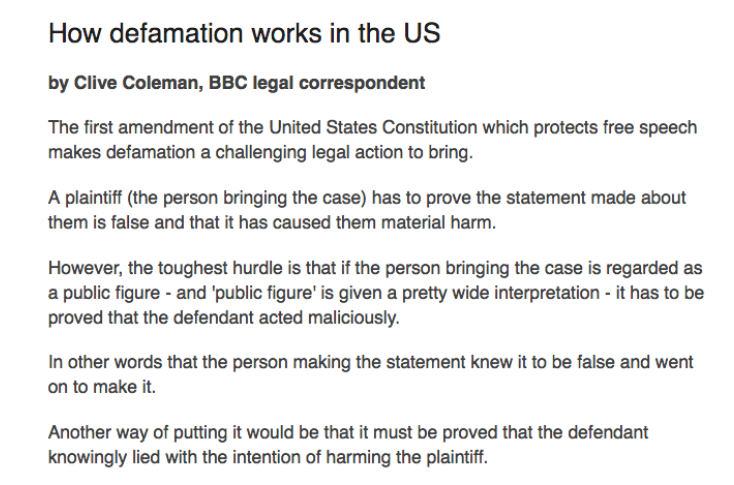

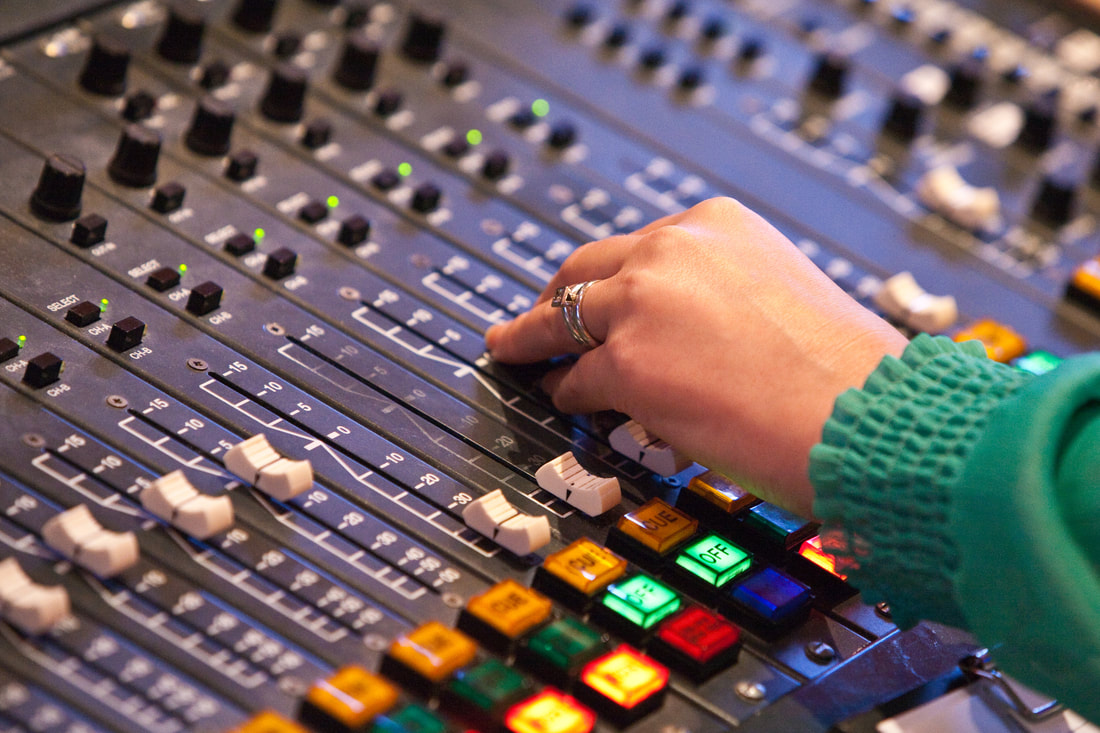
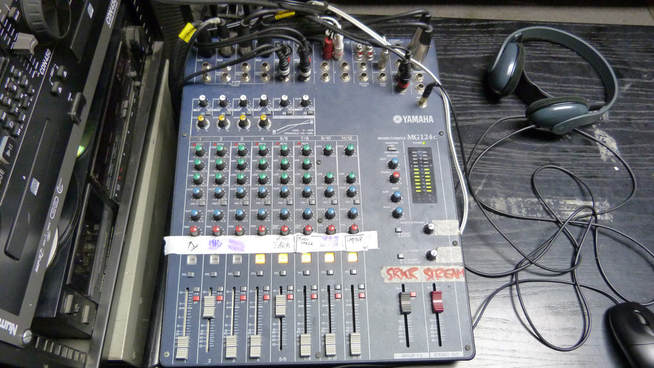
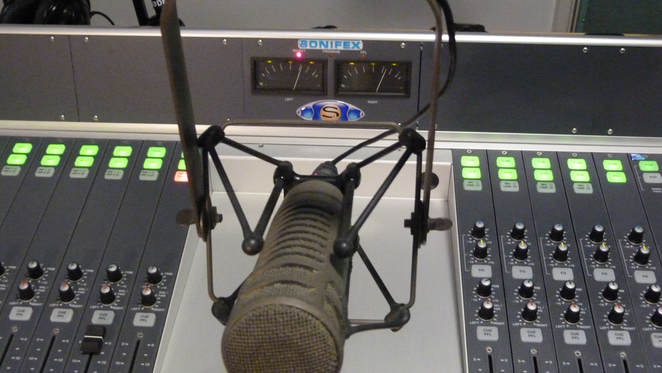
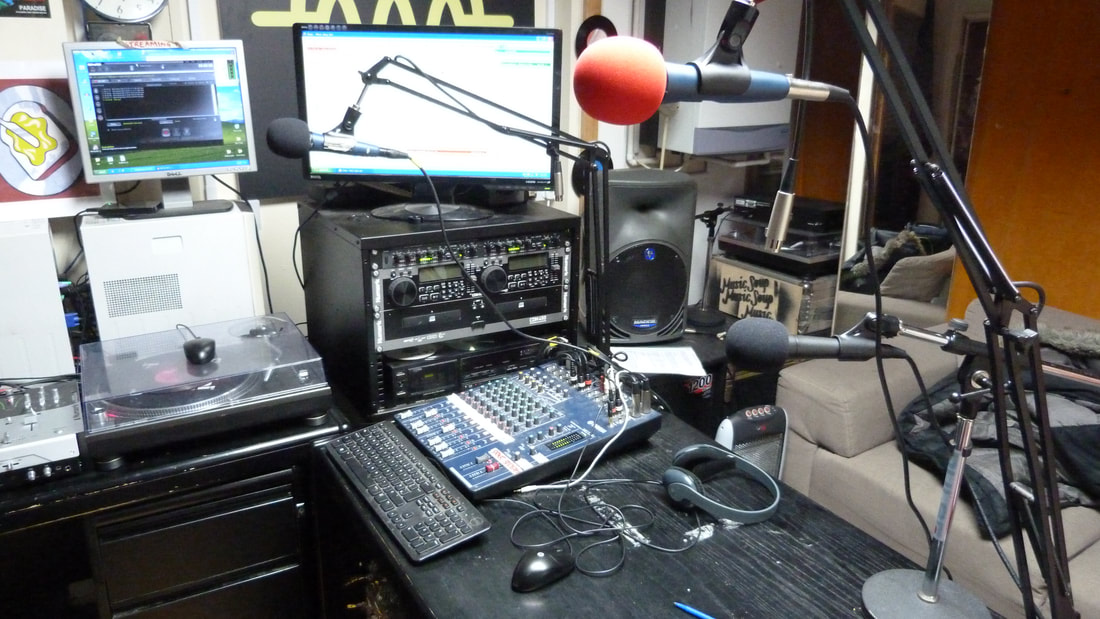
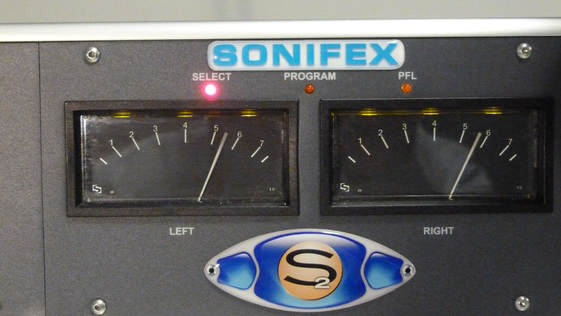
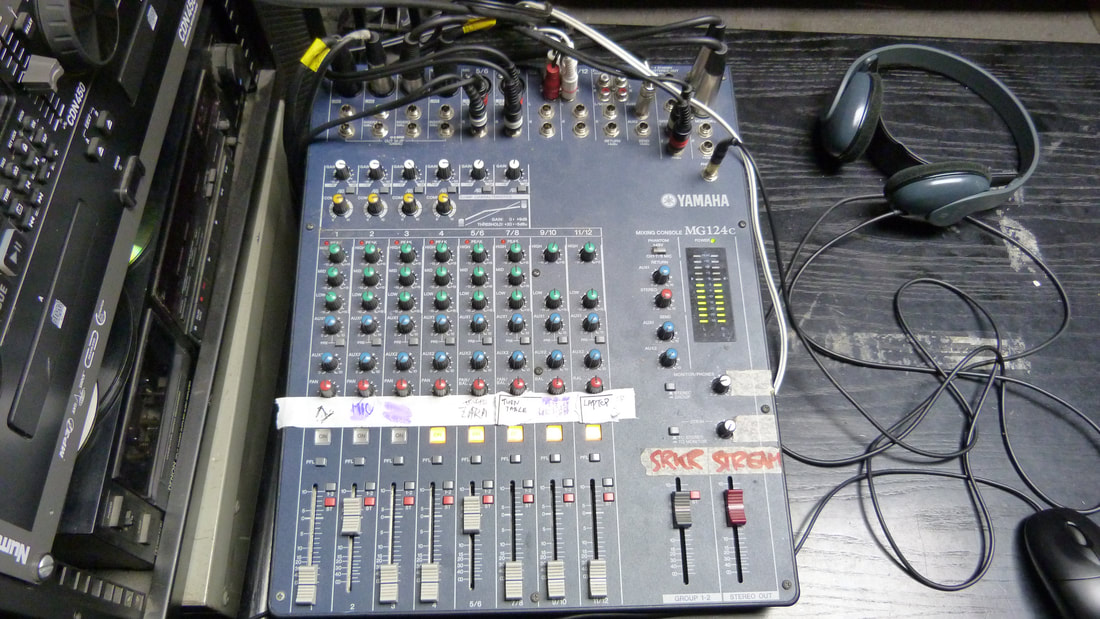
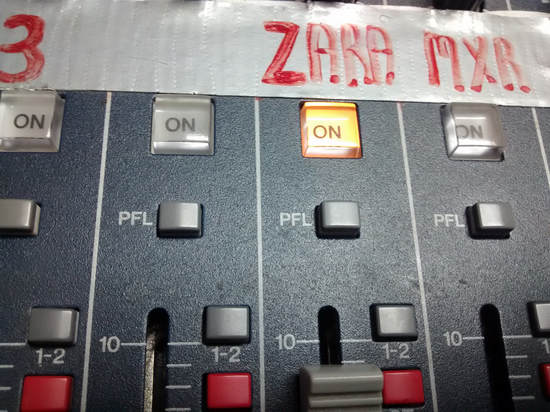
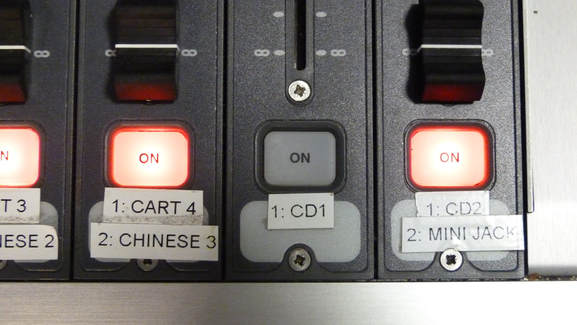
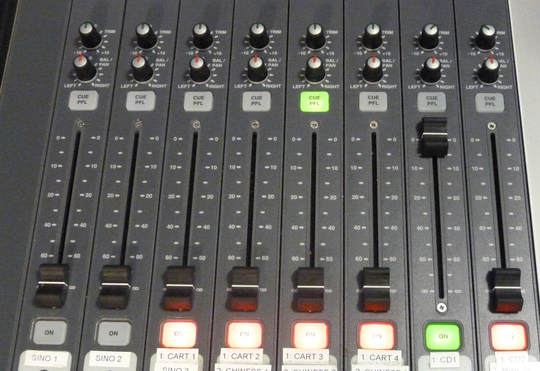
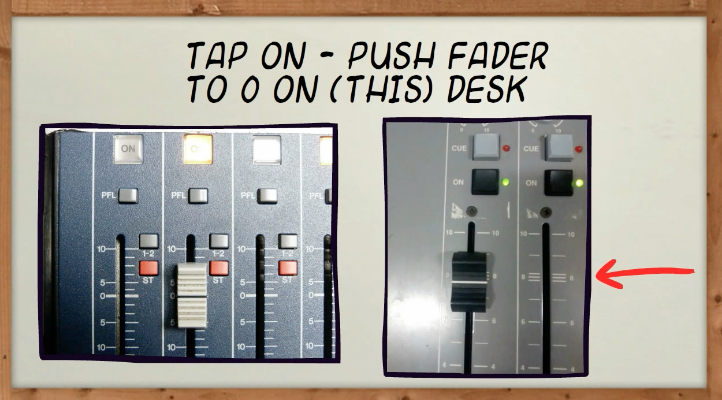
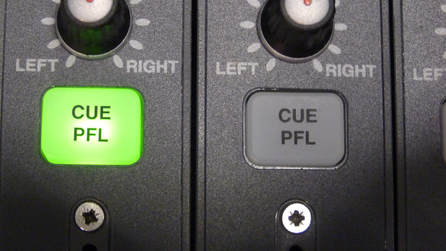
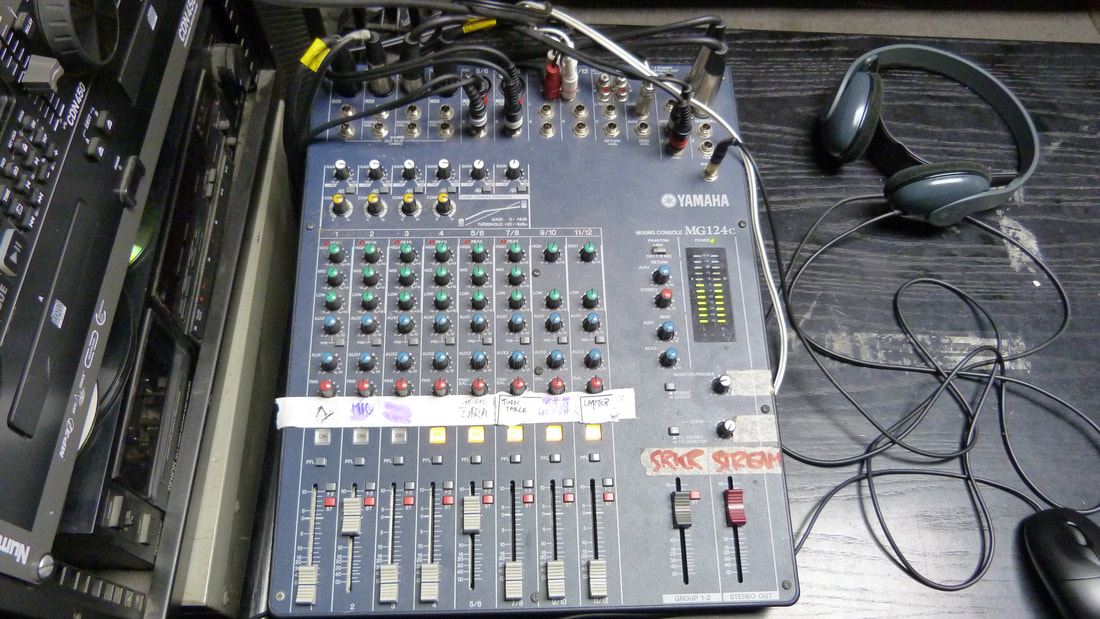
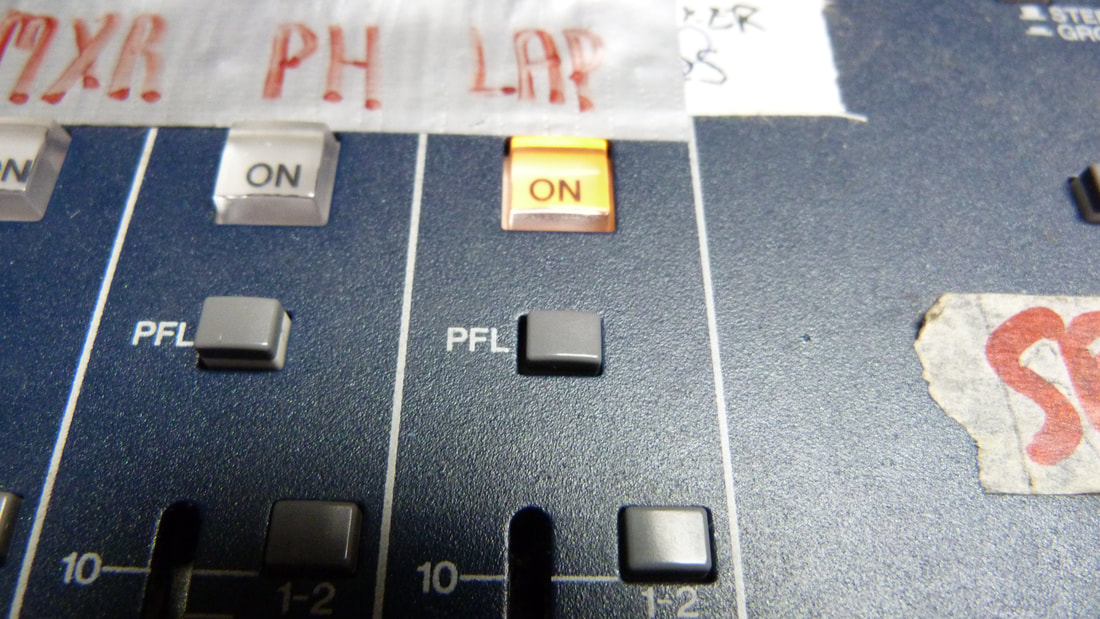
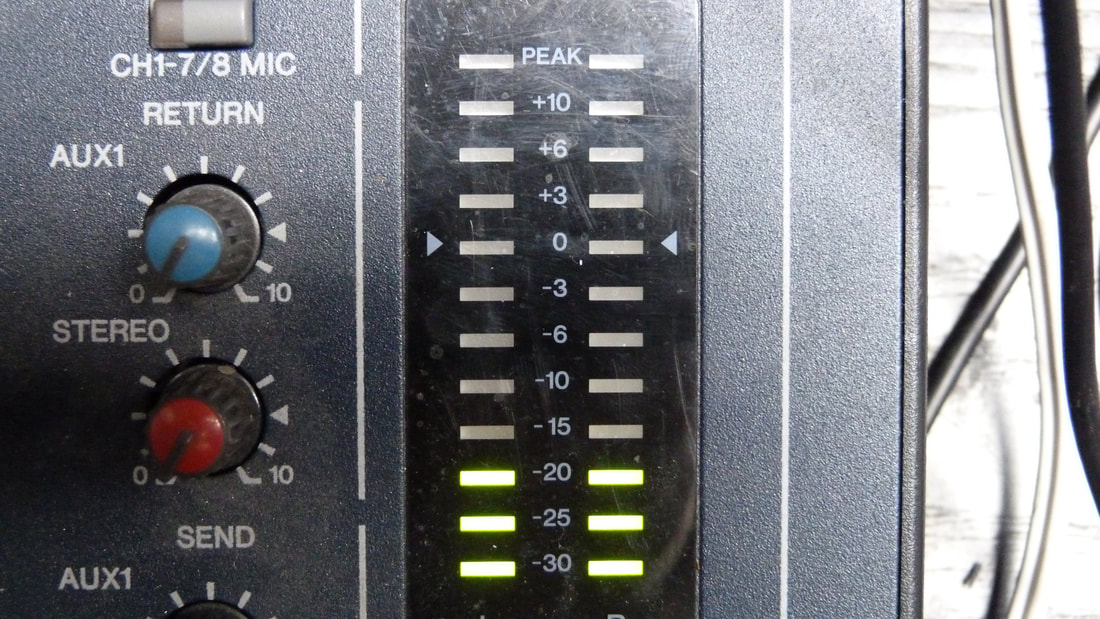
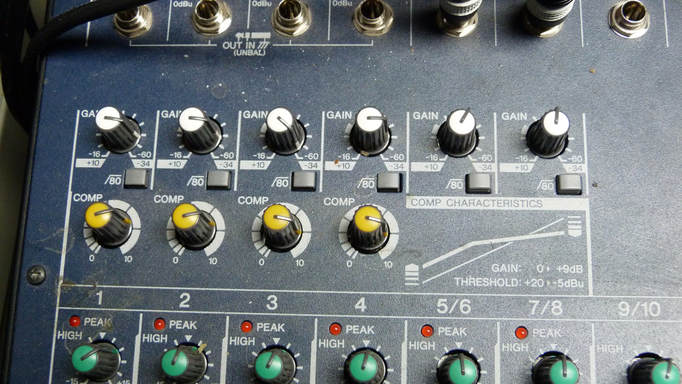
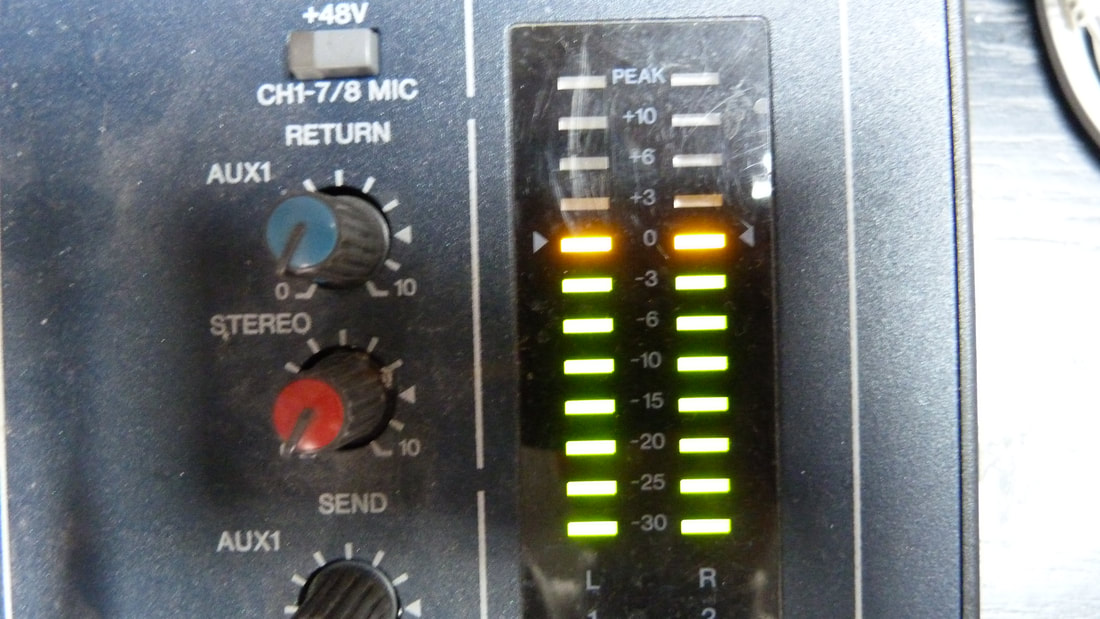
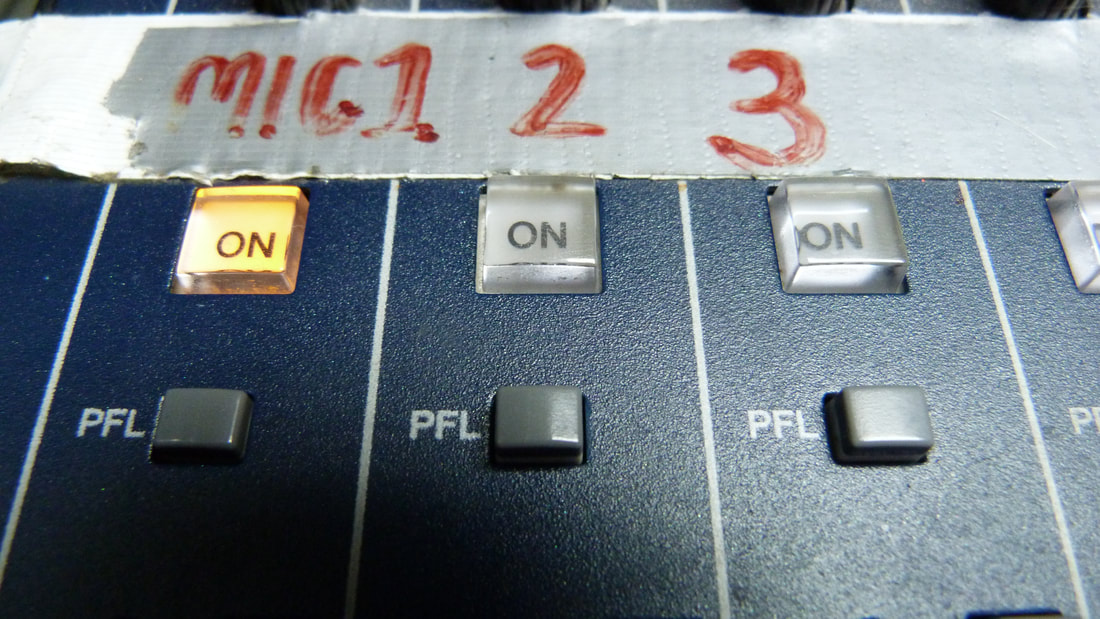
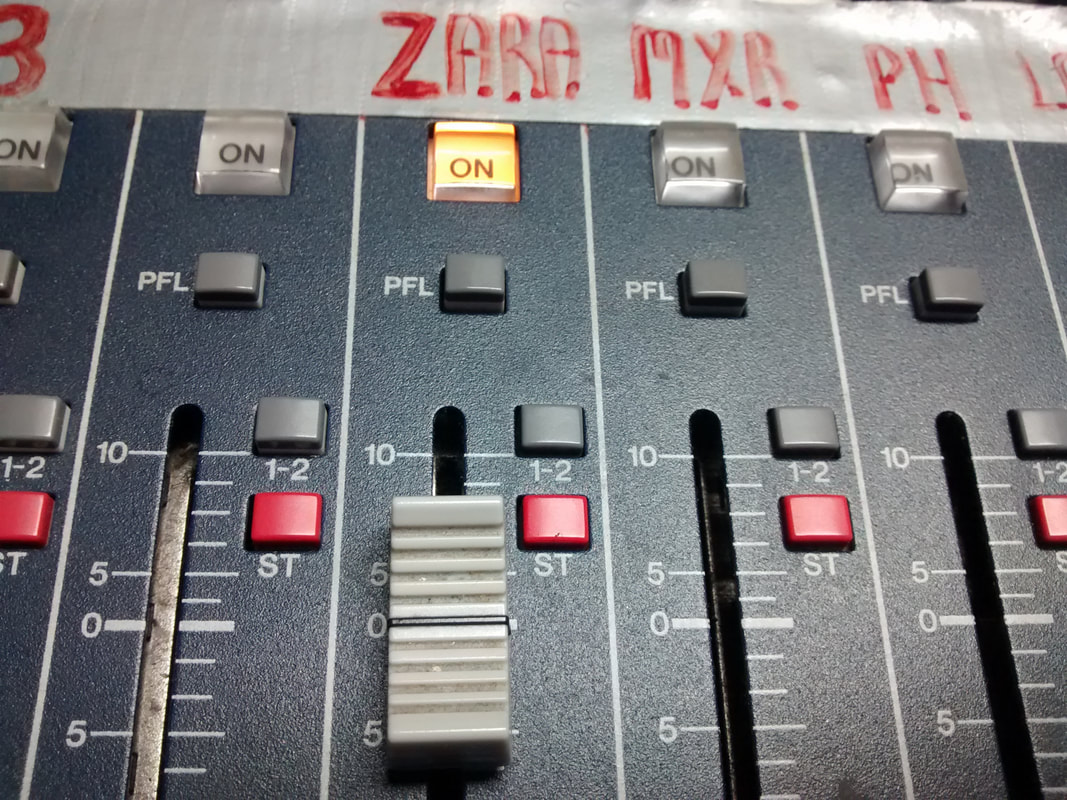
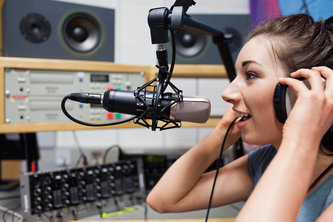

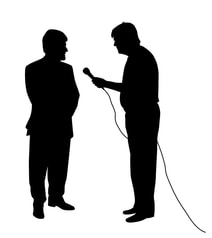
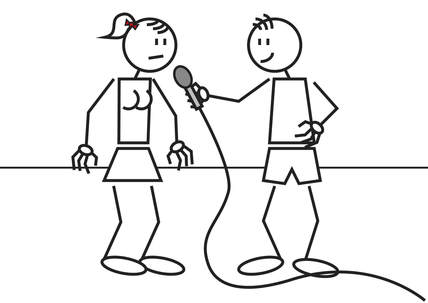
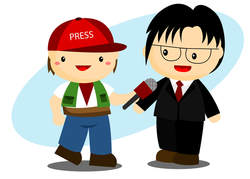
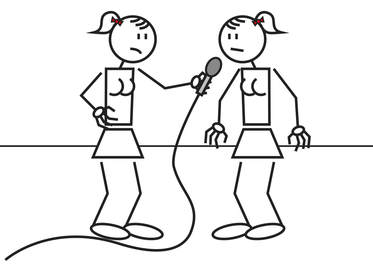
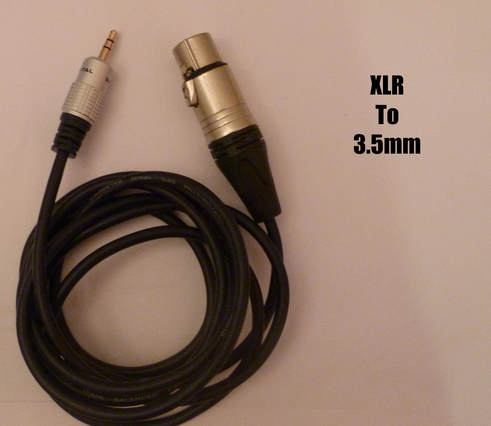
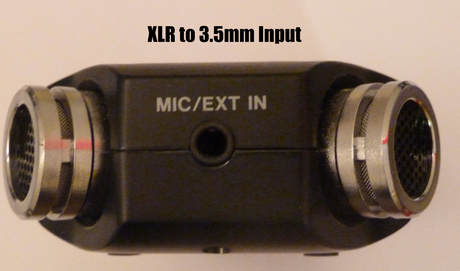
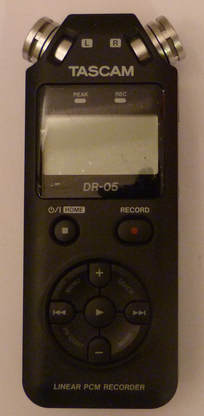
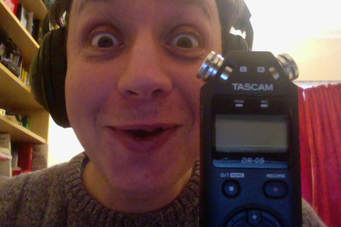
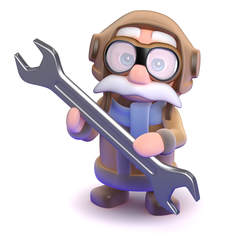
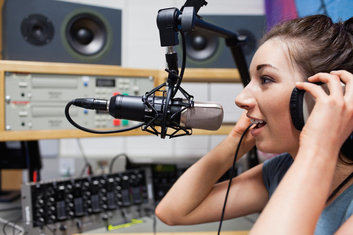
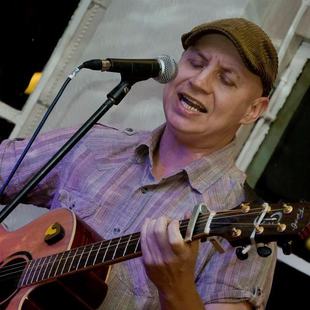
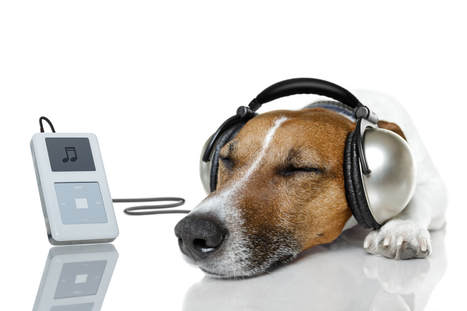

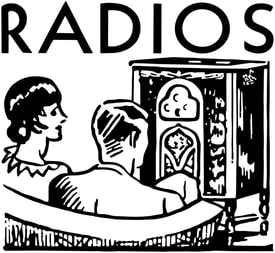
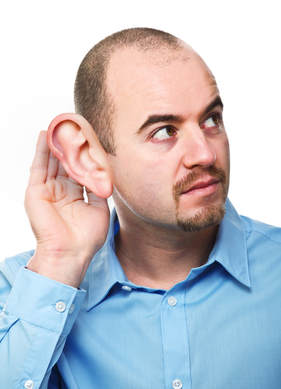

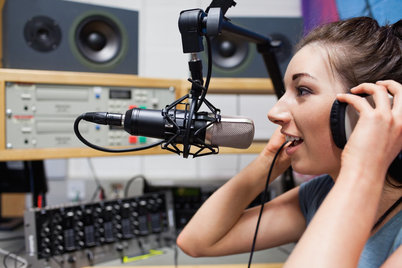
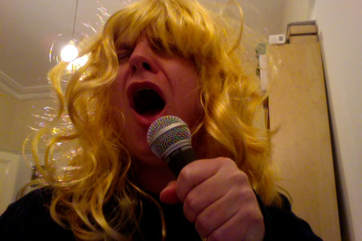
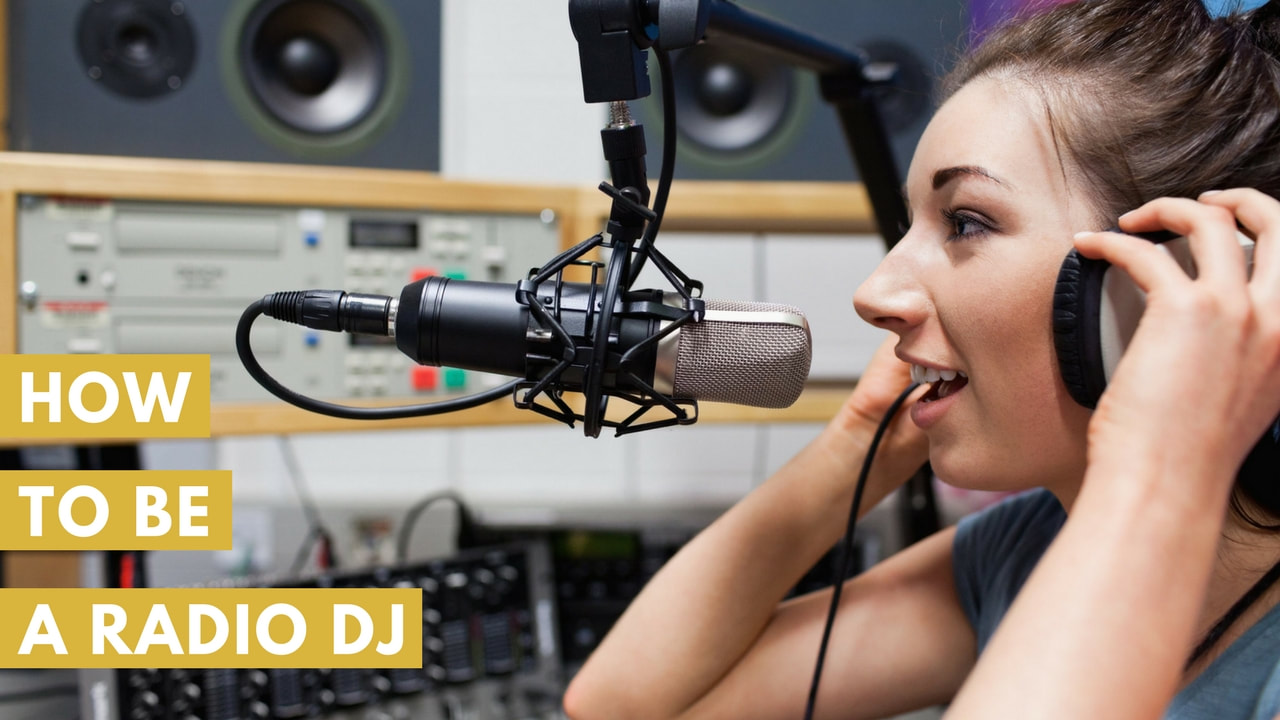
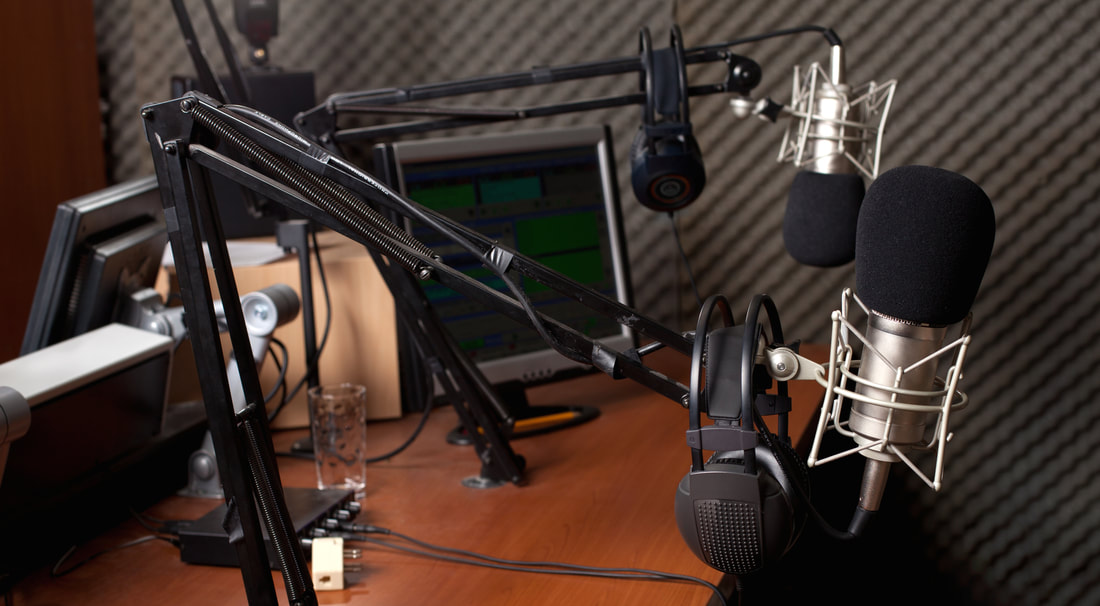
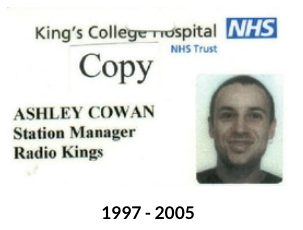
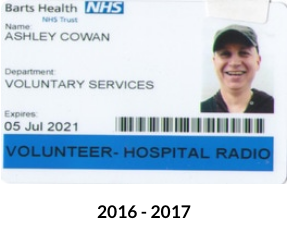
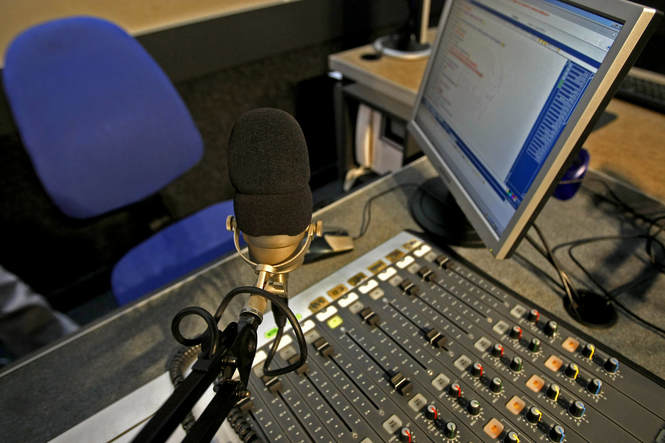
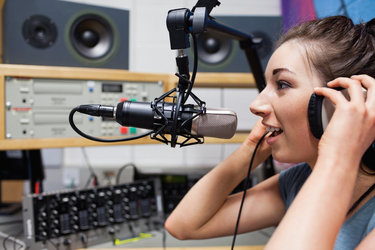
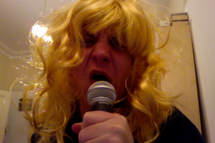
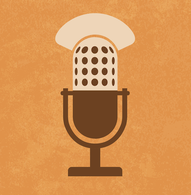
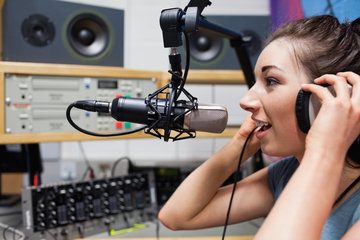

 RSS Feed
RSS Feed
